Defibrillator Cabinets for Safety & Accessibility
Keep your AED safe, visible, and accessible with premium defibrillator cabinets.
Summary
Defibrillator cabinets are essential for protecting Automated External Defibrillators (AEDs) while ensuring they remain visible, accessible, and compliant with safety standards. From wall-mounted AED cabinets to lockable outdoor defibrillator cases, choosing the right storage solution can make all the difference in emergencies. This guide outlines everything you need to know, including types of cabinets, compliance tips, installation advice, and essential product features.
Choosing the Right Defibrillator Cabinet
AED cabinets are designed to securely store defibrillators while keeping them readily accessible in a medical emergency. Whether for public spaces, workplaces, or community facilities, selecting the right defibrillator cabinet ensures the unit is protected from environmental hazards and unauthorised access.
Key types of AED cabinets include:
- Wall-mounted AED cabinets: Ideal for indoor use in offices, schools, and healthcare settings.
- Outdoor defibrillator cabinets: Weatherproof models designed to withstand Australia’s harsh climate.
- Defibrillator storage cabinets with alarms: Alert passersby or staff when the AED is accessed.
- Lockable AED cabinets: For added security in high-traffic or vandalism-prone areas.
When choosing a cabinet, ensure compatibility with your AED model. Popular designs like aivia defibrillator cabinets offer transparent covers, internal lighting, and weather-resistant materials. Others include defibrillator external cabinets with built-in heating for low-temperature zones.
Tip: Always opt for models that meet the recommendations of organisations like the Australian Resuscitation Council (ARC).
Why Proper AED Storage Matters
Storing AEDs in compliant, clearly marked cabinets is not just good practice — it's a matter of life and death. Sudden cardiac arrest is a leading cause of death in Australia, with over 25,000 cases annually¹. The survival rate drops by 10% for every minute defibrillation is delayed. Fast access is critical.
Benefits of using AED defibrillator cabinets:
- Quick identification: High-visibility signage helps responders locate the AED instantly.
- Protection: Keeps AED units safe from dust, moisture, theft, and vandalism.
- Regulatory compliance: Meets occupational health and safety requirements for public AED installations.
- Accessibility: Ensures that untrained bystanders can use the device quickly and safely.
Organisations such as Safe Work Australia recommend ensuring AEDs are clearly visible, accessible at all times, and properly maintained.
Features to Look for in AED Cabinets & Cases
When selecting a defibrillator cabinet, several key features should guide your decision. The best models balance durability, security, ease of access, and visibility.
Essential features:
- Clear signage with the AED symbol or green/white colour coding
- Audible alarm or flashing light to draw attention when opened
- Wall-mounting kits for easy installation
- Weather resistance (especially important for outdoor defibrillator cabinets)
- Transparent or windowed doors for quick AED visual checks
- Internal lighting or heating for cold climates
If portability is important (e.g. for sporting clubs or events), look for a defibrillator carry case or AED cabinet with grab handles and foam inserts.
Many businesses opt for branded AED defibrillator cabinets to match their model, such as:
- Zoll AED cabinets
- Philips HeartStart cabinets
- Lifepak CR2 storage options
These tailored units offer a snug fit and are often supplied by the manufacturer or approved reseller.
Featured Products

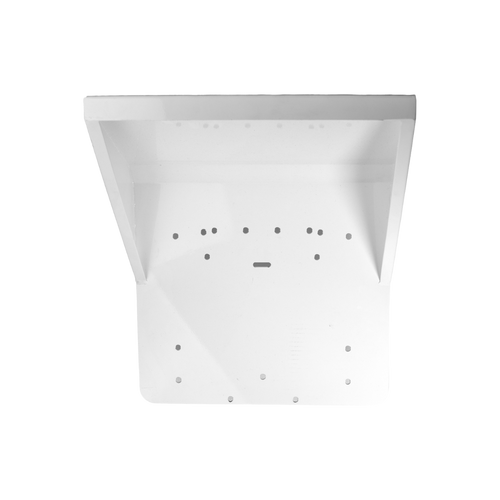
Installation & Maintenance Tips
Installing a defibrillator cabinet is straightforward but must follow certain safety and accessibility standards. Placement, signage, and maintenance protocols are all critical to ensure your AED is available when it matters most.
-
Installation tips:
- Mount at visible height (typically ~1.2–1.5m from the ground)
- Place in high-traffic or central areas such as reception zones or near elevators
- Ensure the AED location is registered with your local ambulance authority (like Ambulance Victoria or NSW Ambulance)
- Install appropriate signage above and beside the cabinet
For defibrillator storage cabinets in outdoor environments:
- Choose weatherproof units with IP-rated seals
- Consider battery-operated alarms or solar-powered heating elements
- Secure the unit with a lockable cabinet if necessary, but ensure emergency access is straightforward
-
Maintenance checklist:
- Check AED battery and pad expiry dates monthly
- Inspect cabinet integrity — look for moisture ingress, cracks, or alarm faults
- Log inspections as part of your workplace safety checklist
Several Australian suppliers offer AED cabinet bundles, which include:
- The defibrillator device
- Wall bracket or cabinet
- First responder kits
- Signage
These can streamline compliance for workplaces, community centres, and local councils.
Conclusion
Investing in a high-quality AED defibrillator cabinet is an essential step in building a safer environment — whether you're equipping a public venue, workplace, or private business. With so many defibrillator cabinet options available, from storage cabinets to external units, understanding your needs is key to making the right choice.
By following best practices for cabinet selection, placement, and maintenance — and using standards-compliant models — you can ensure your AED remains secure, visible, and life-saving ready.
Equip your facility with a life-saving defibrillator cabinet today.
Browse our full range of AED cabinets, carry cases, and accessories.
📞Call 1300 615 193 or Order online at our website.
Defibrillator cases and cabinets help keep your AED protected, clearly visible and ready for fast access in an emergency. From indoor wall-mounted cabinets to weatherproof outdoor enclosures, these storage solutions support safer AED placement with clear signage options, alarmed access features and secure mounting for workplaces, schools, gyms and community facilities. Good AED storage improves visibility and helps reduce delays when every minute matters.
What this collection includes:
• Wall-mounted AED cabinets for indoor sites (reception, corridors, first aid rooms)
• Outdoor defibrillator cabinets with weatherproof seals for external placement
• Alarmed AED cabinets with strobe/light options to draw attention when opened
• Lockable defibrillator cabinets and secure enclosures for higher-risk locations (with clear access instructions)
• Defibrillator carry cases and protective storage solutions for transport and events
• Cabinet stands/shrouds and accessories to improve visibility and site protection
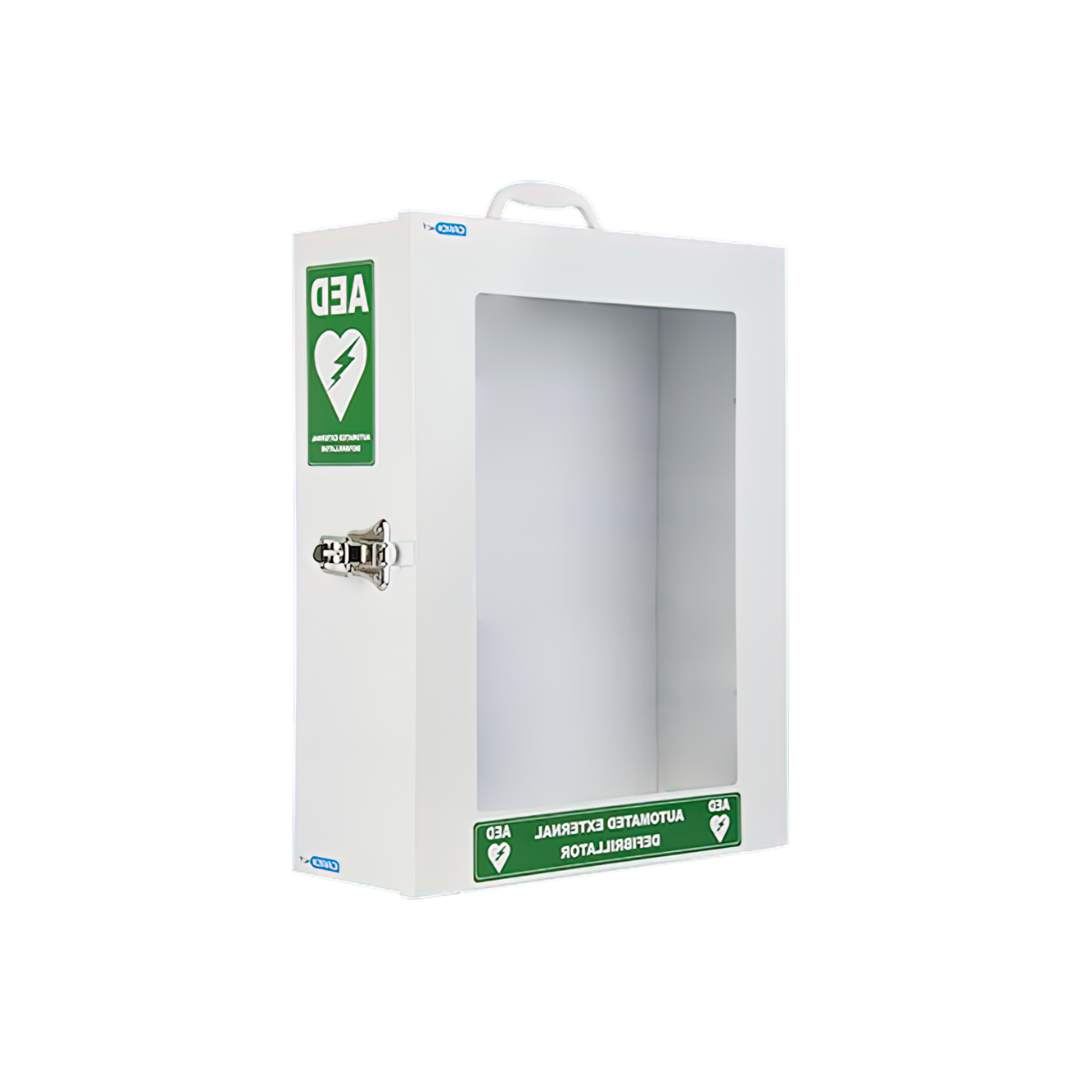
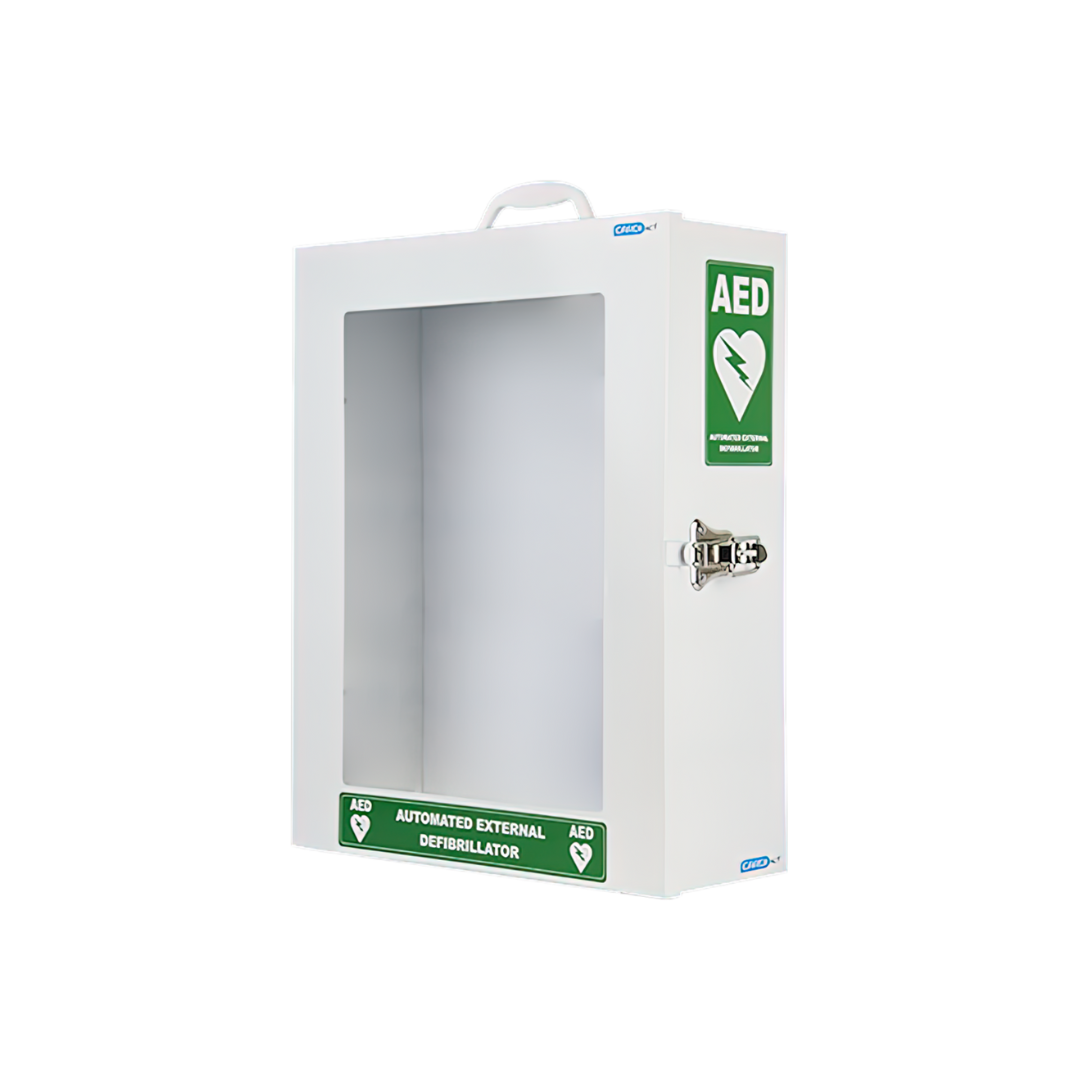
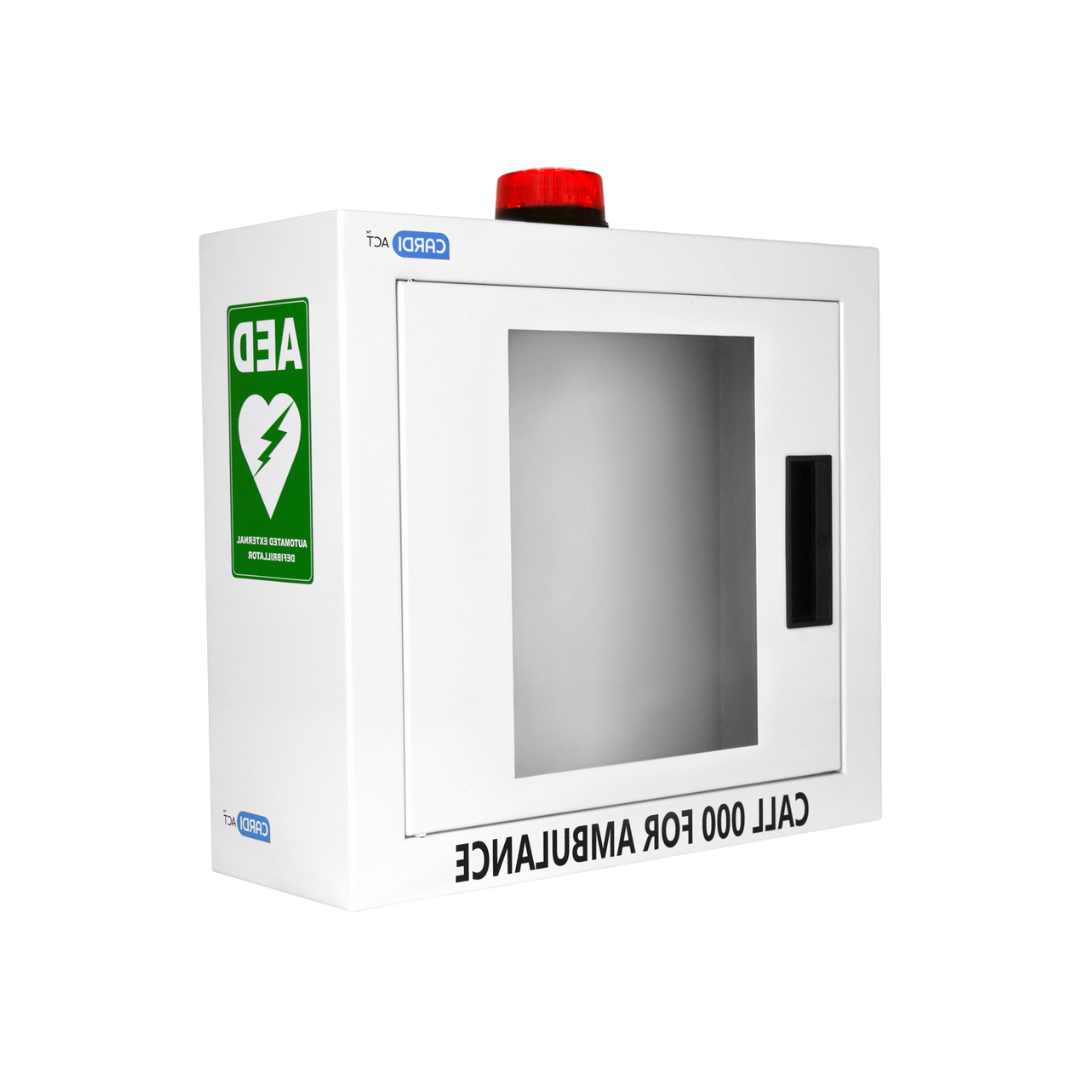
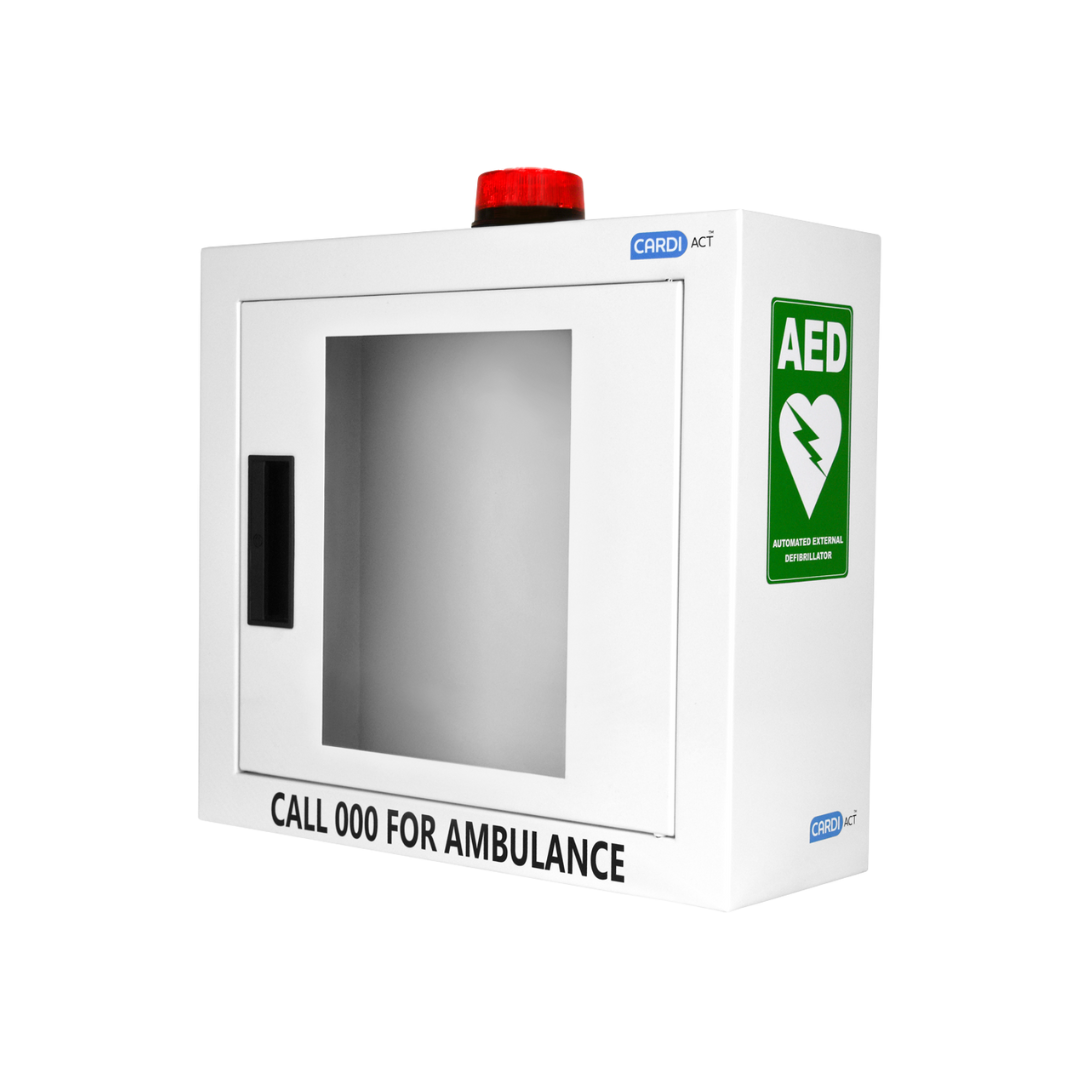
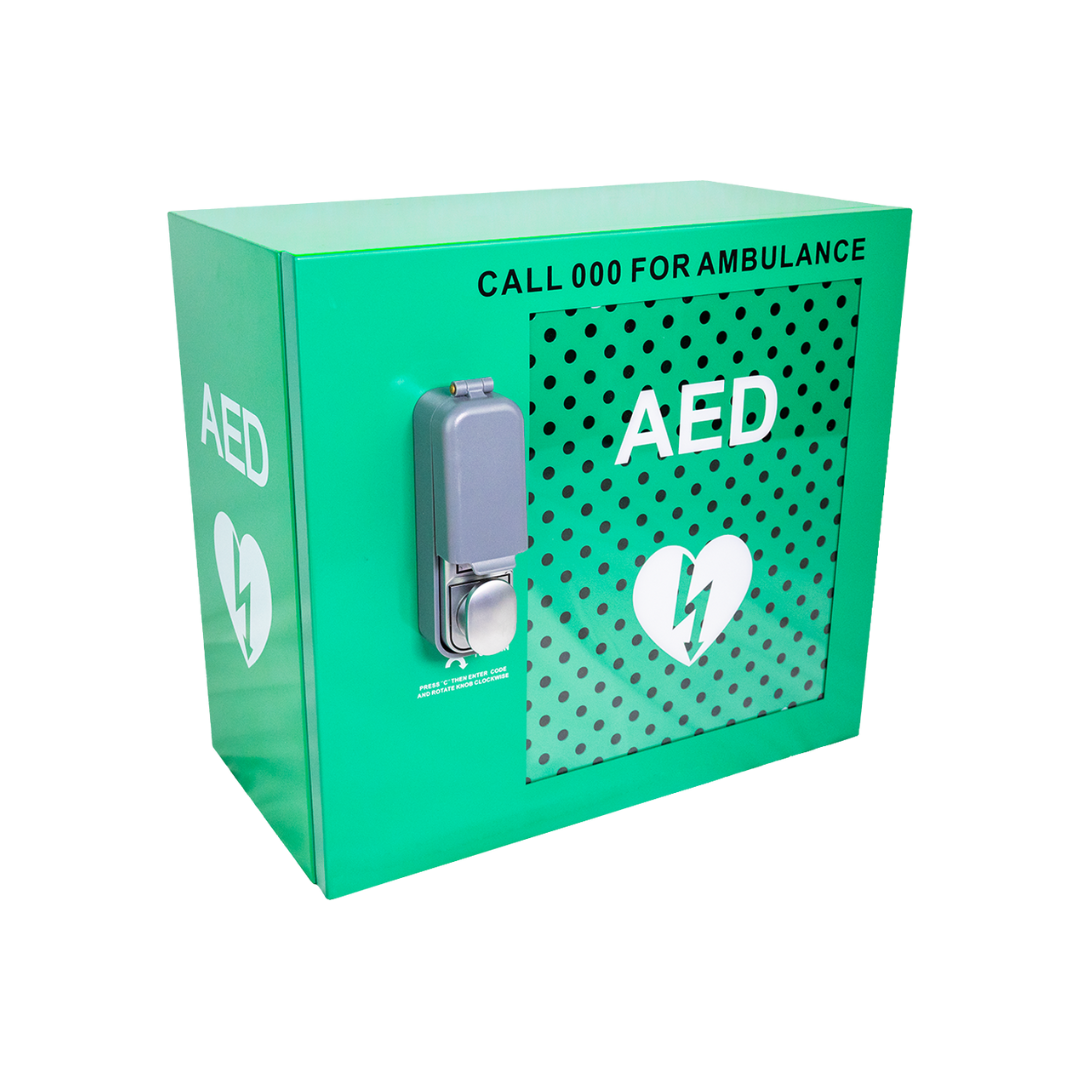
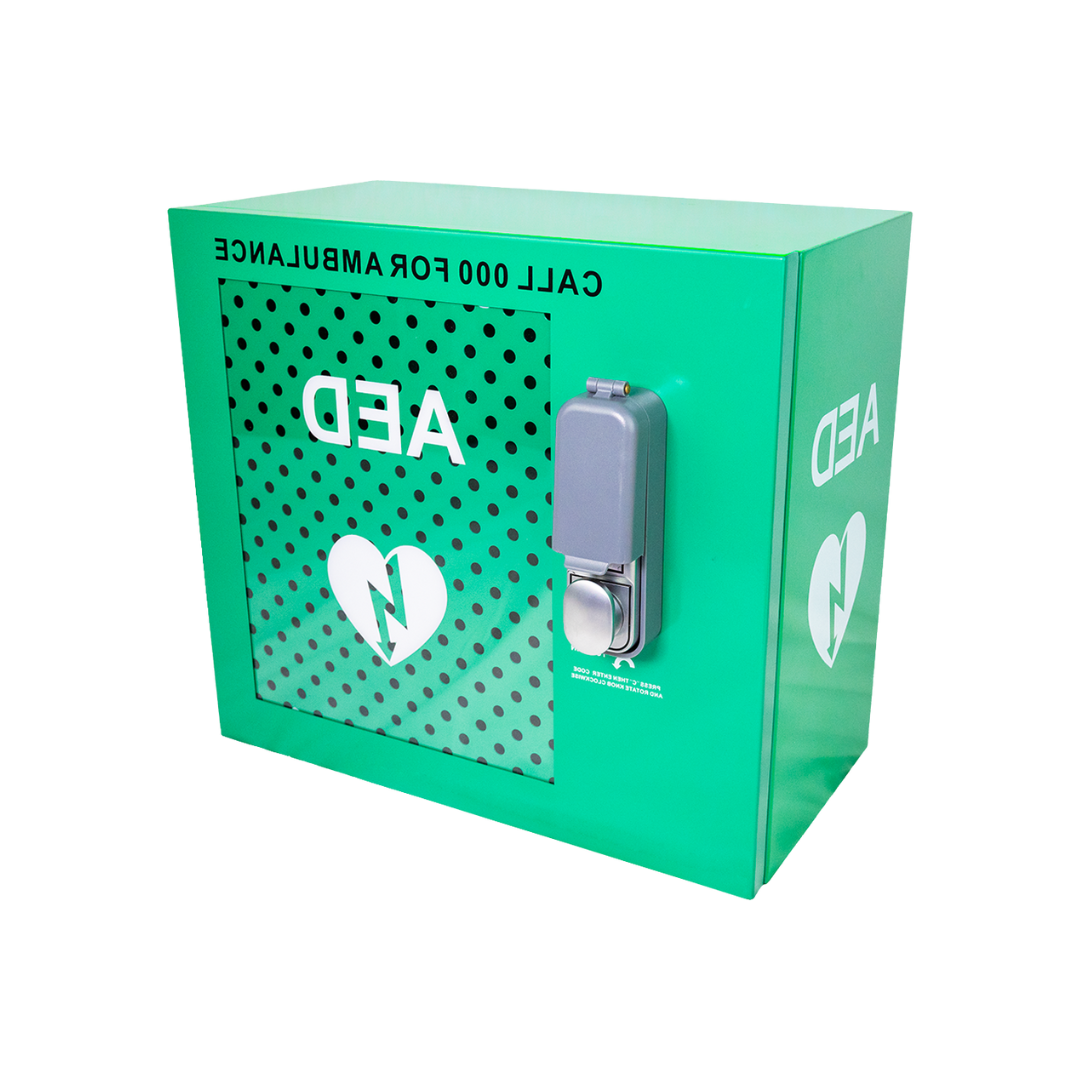
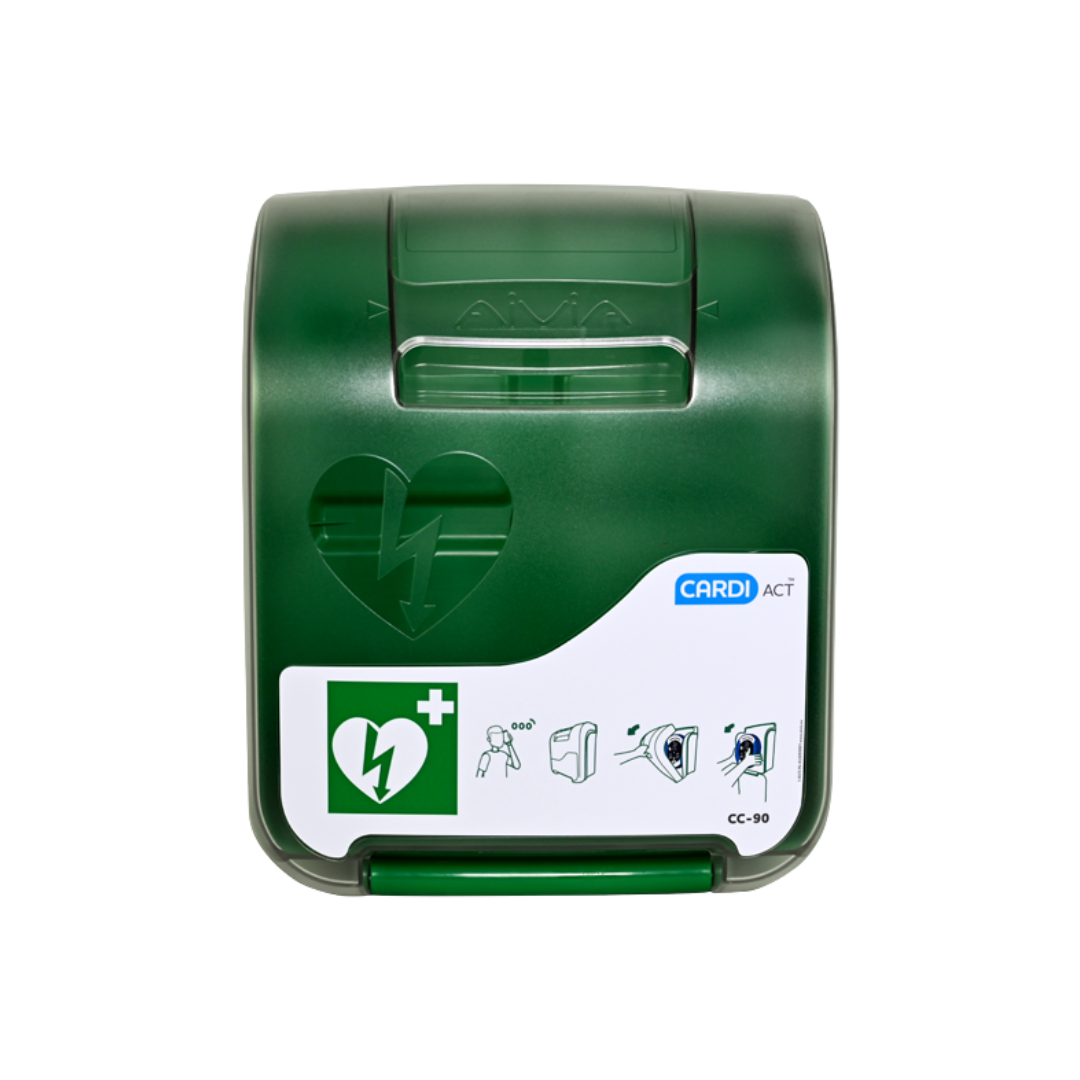
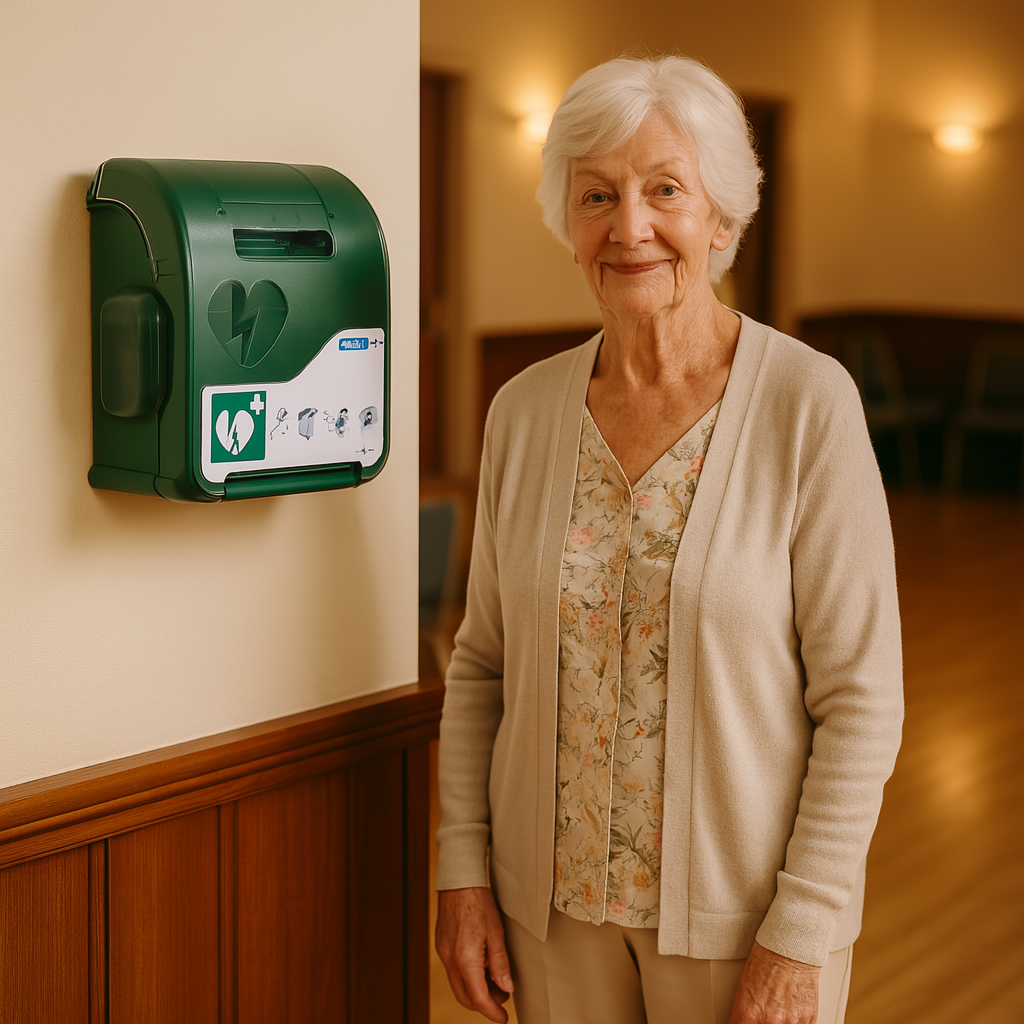
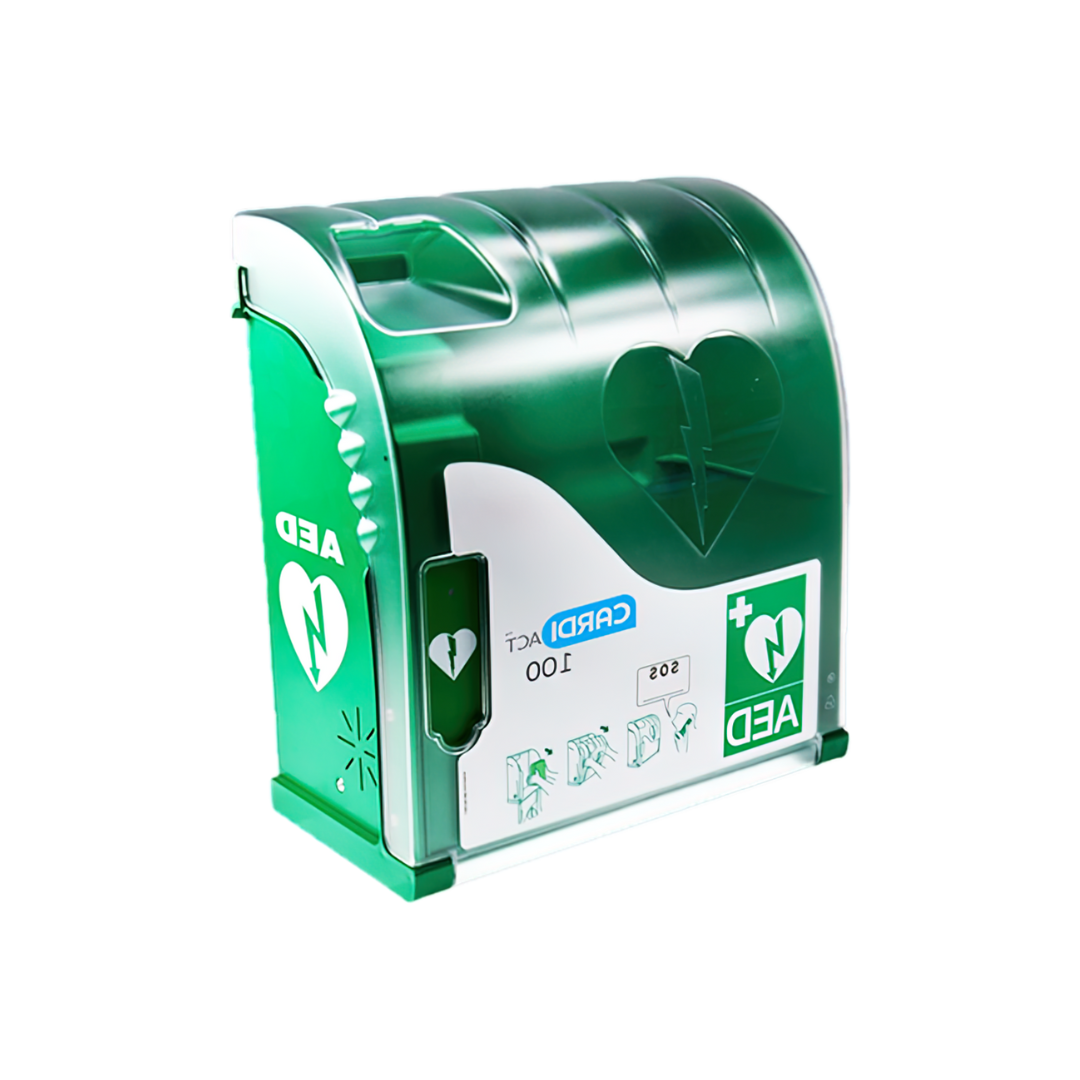
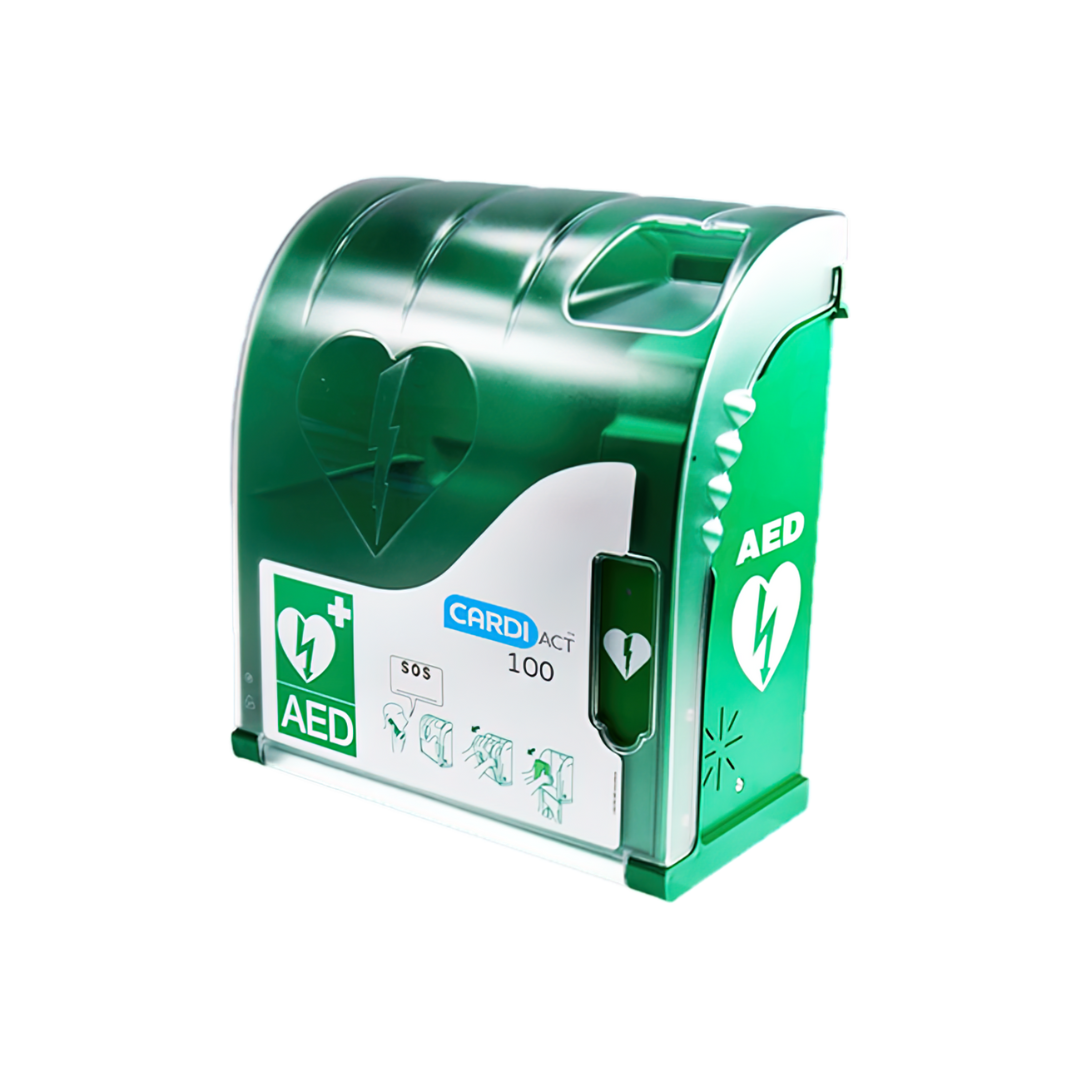
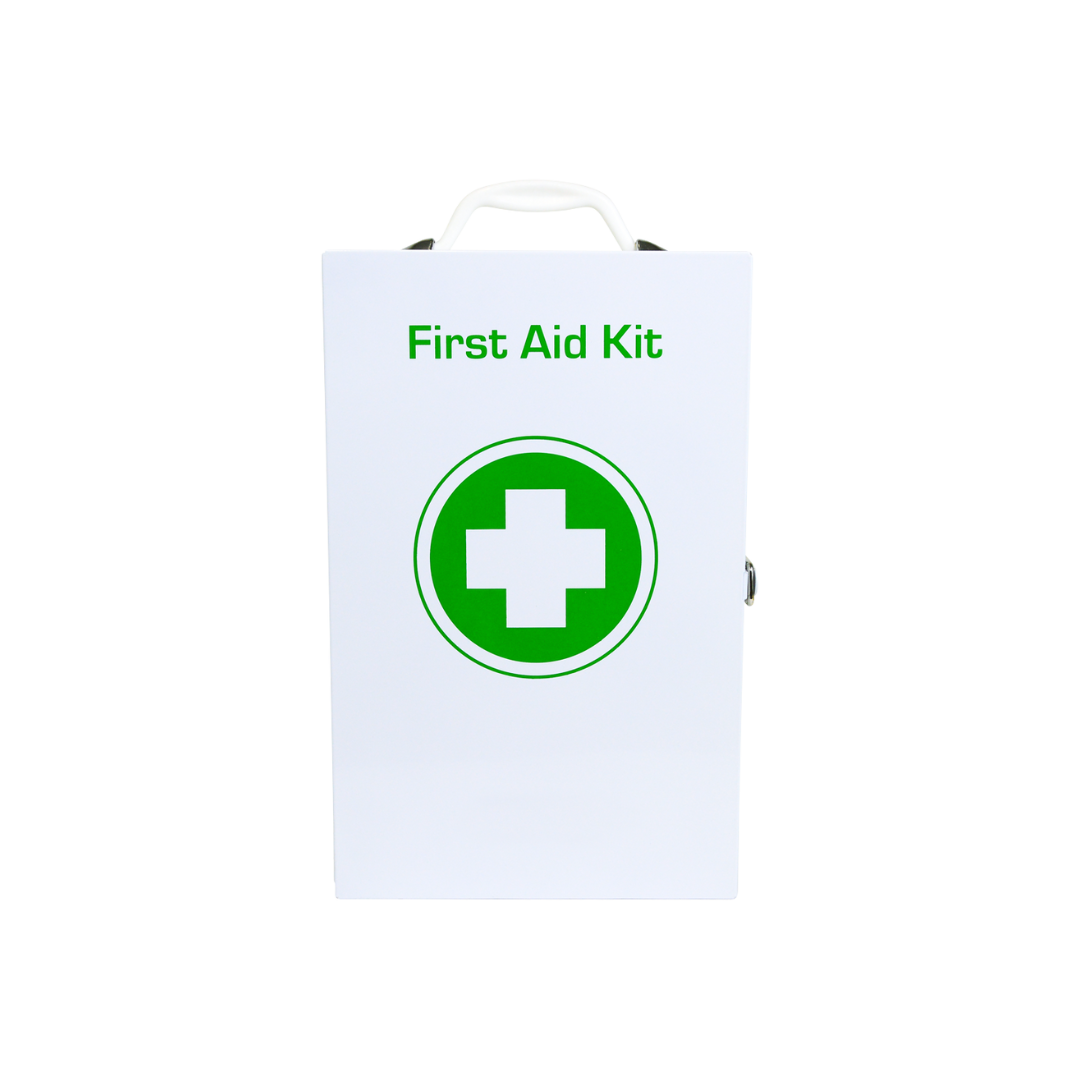
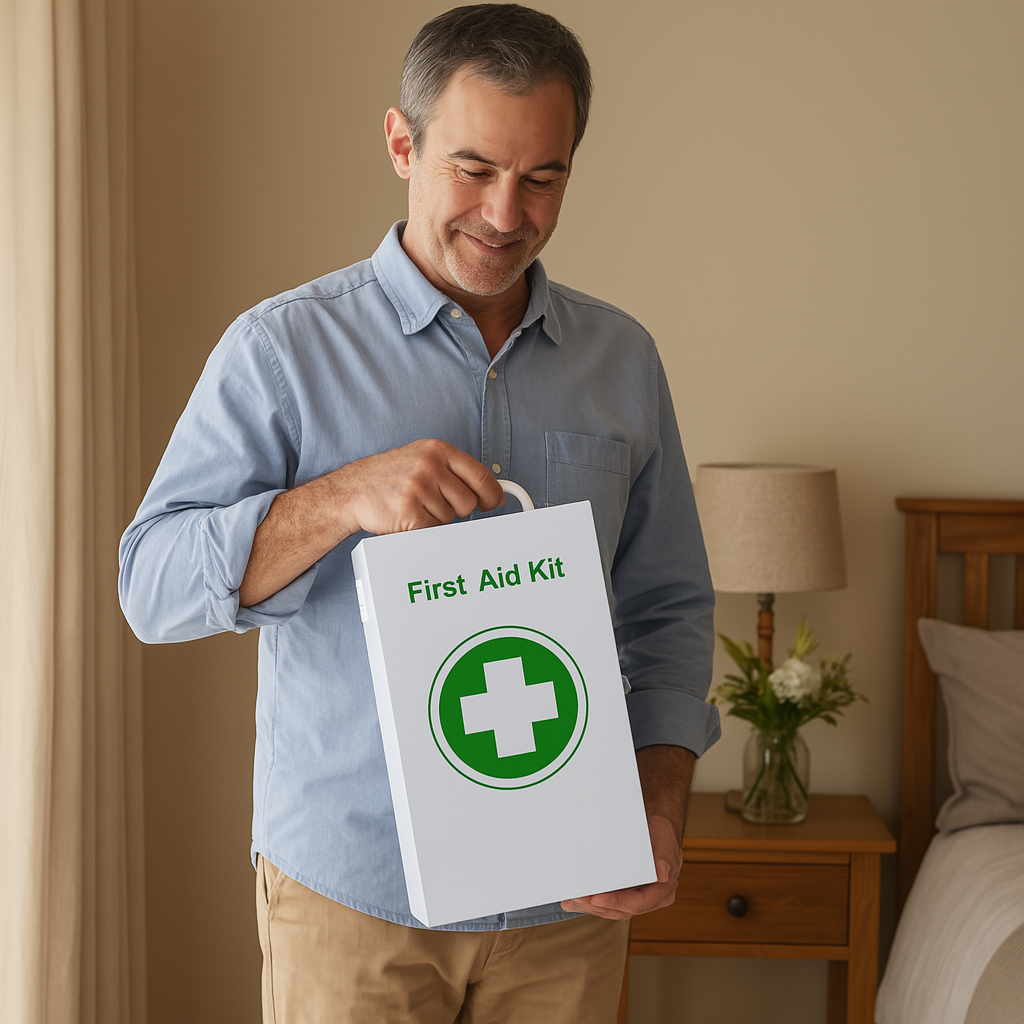
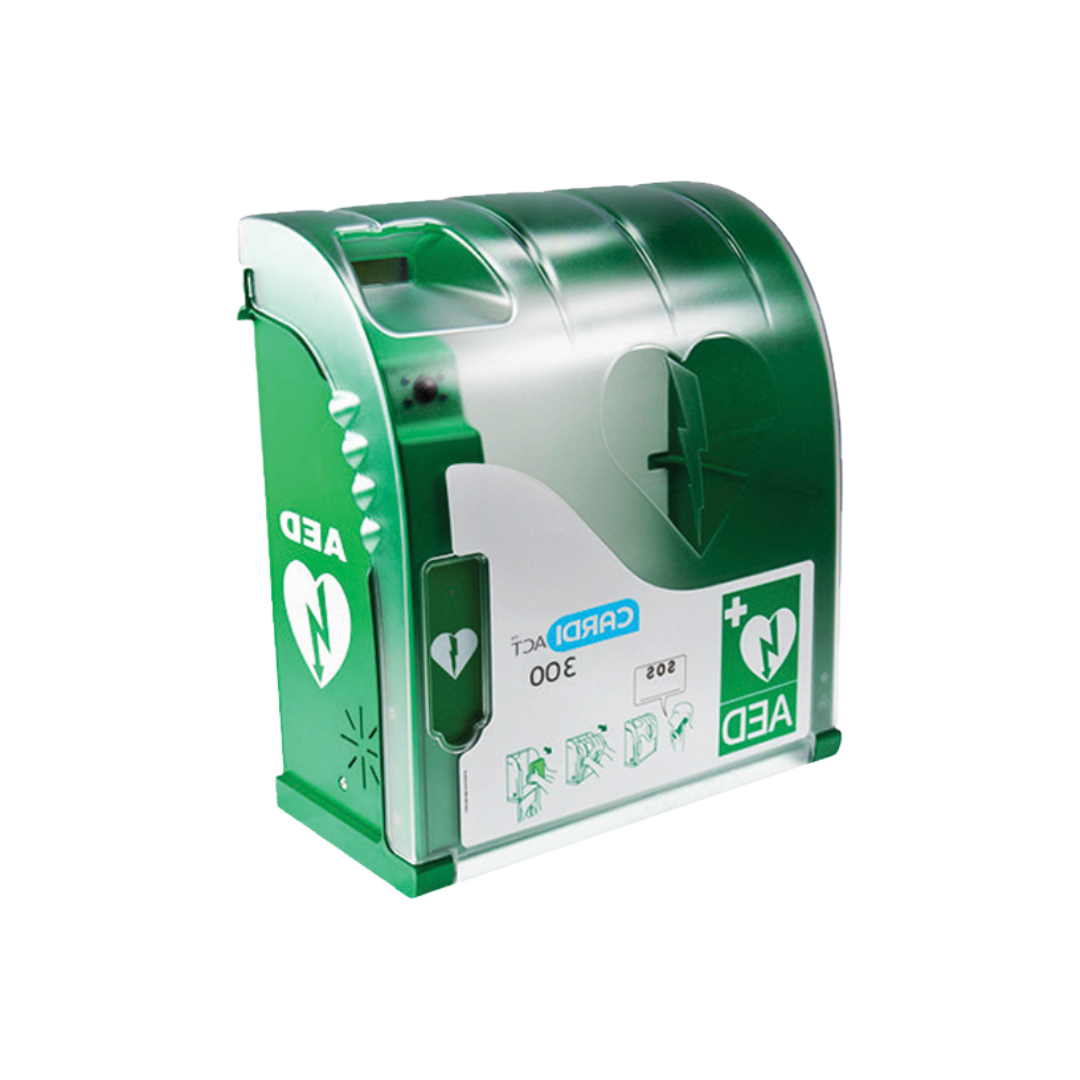
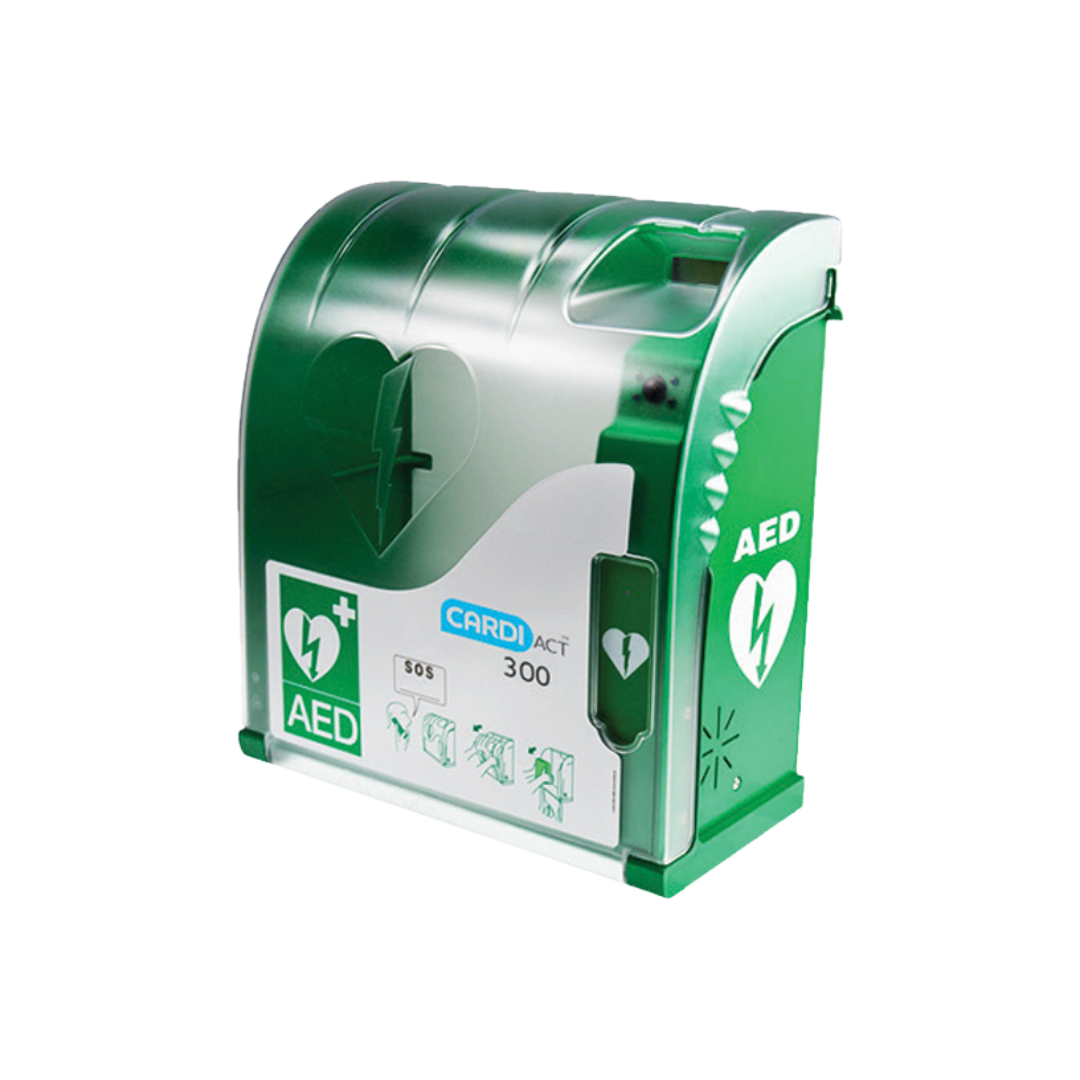
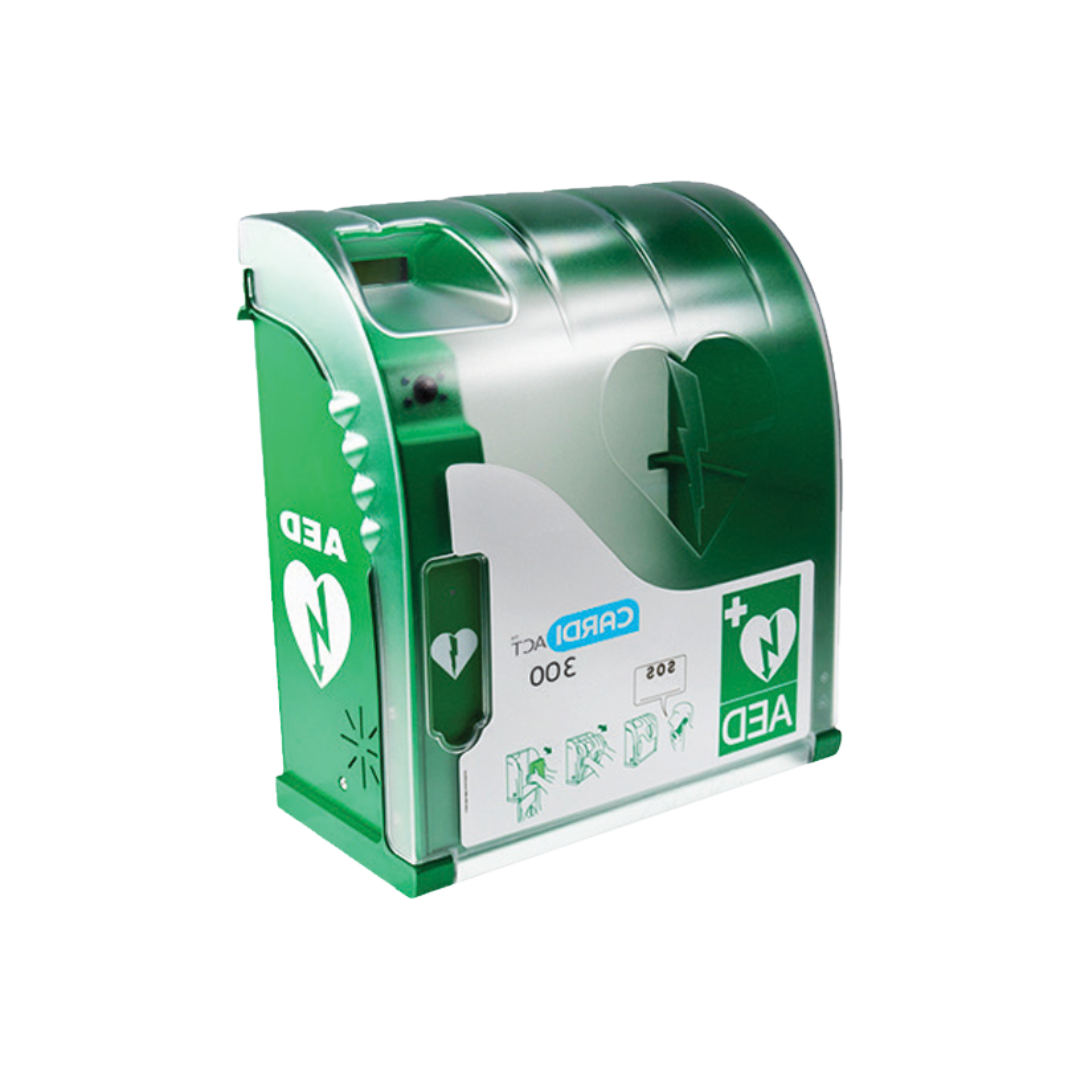
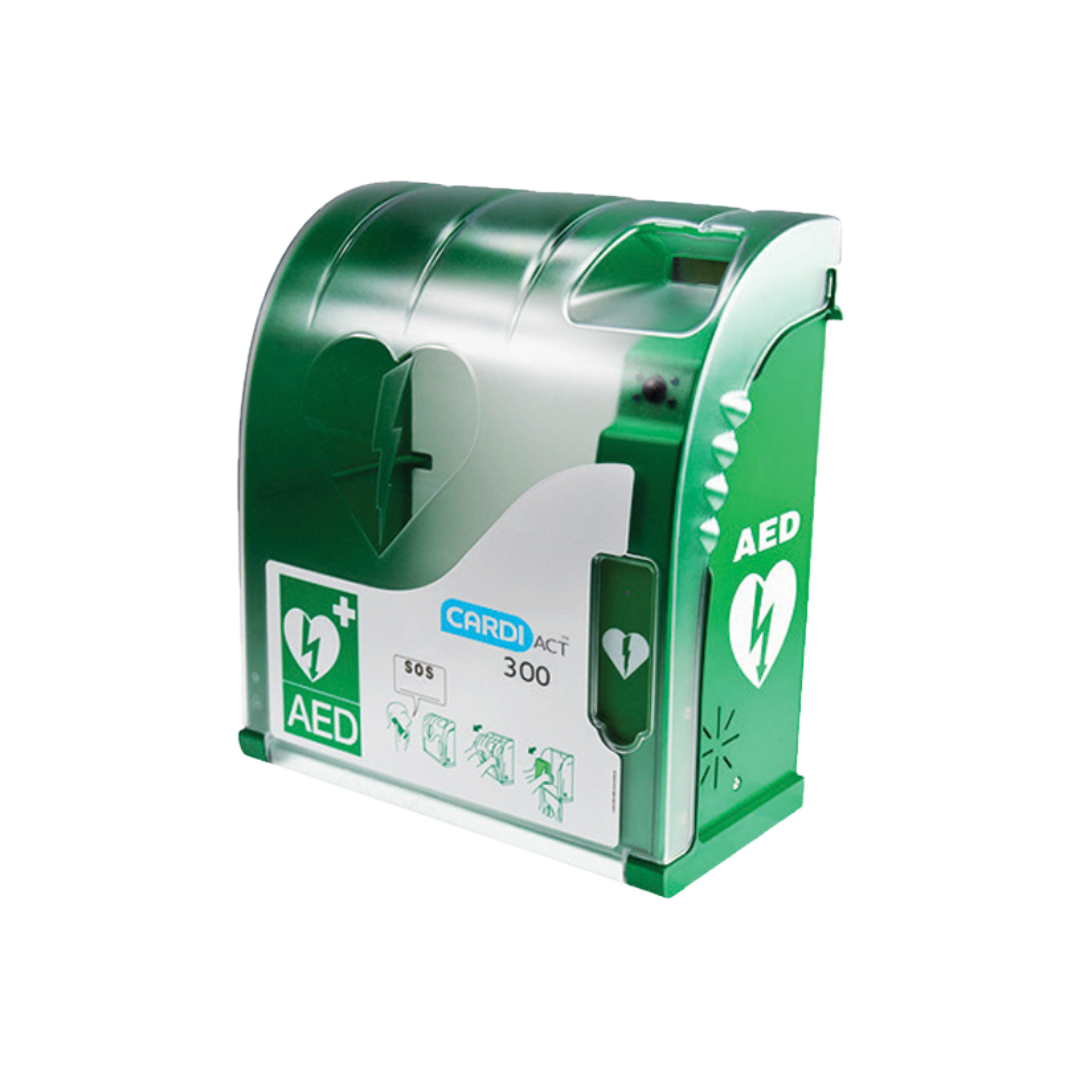
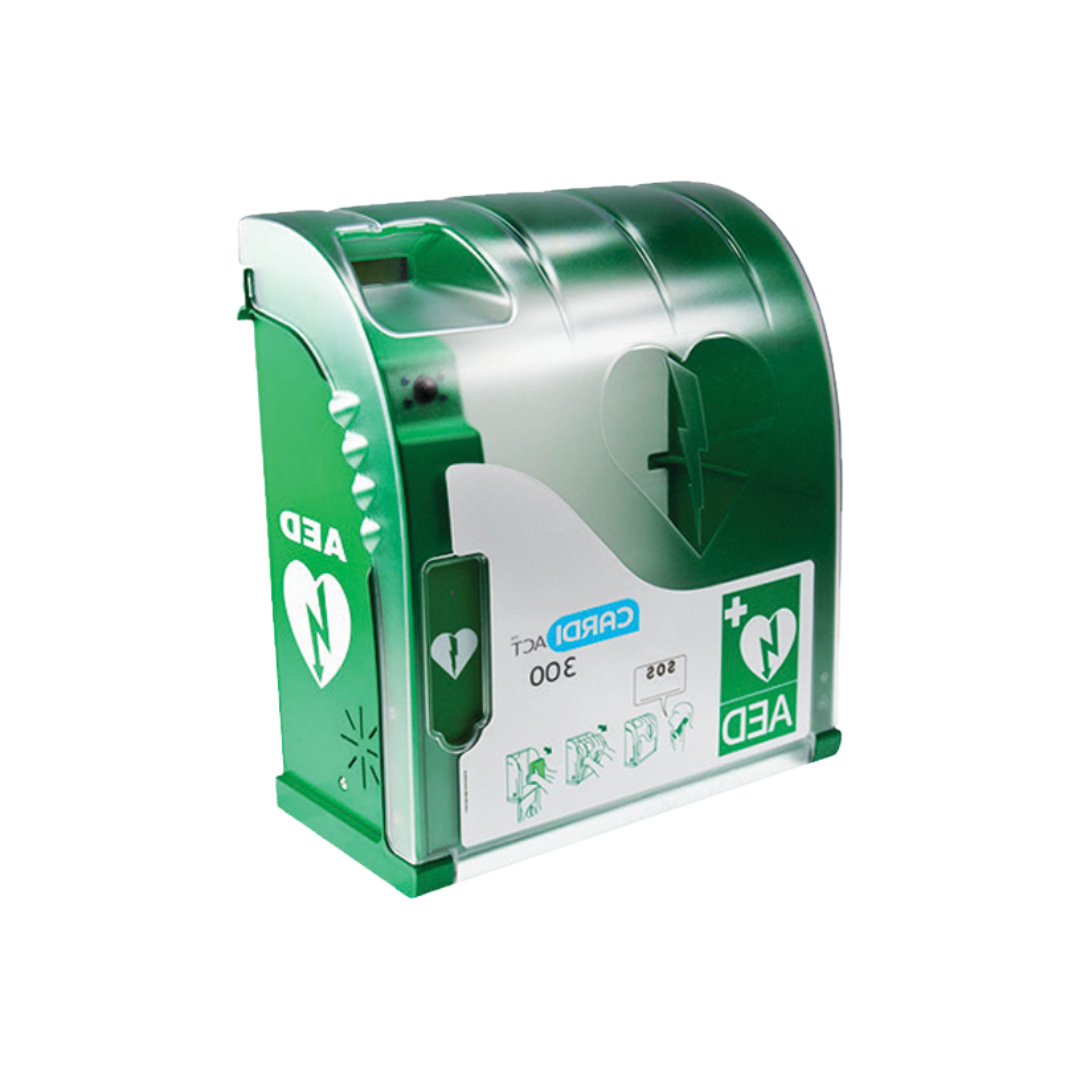
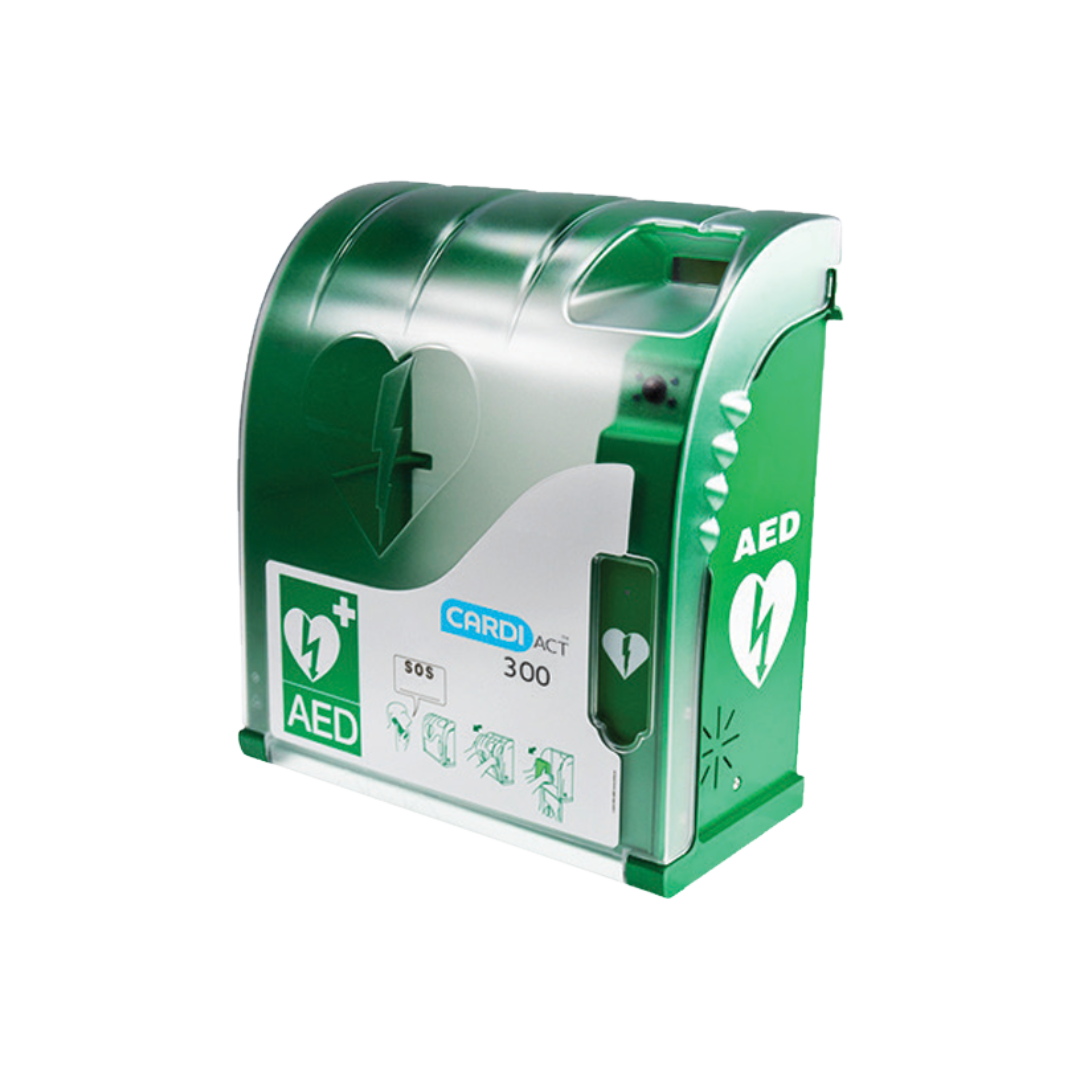
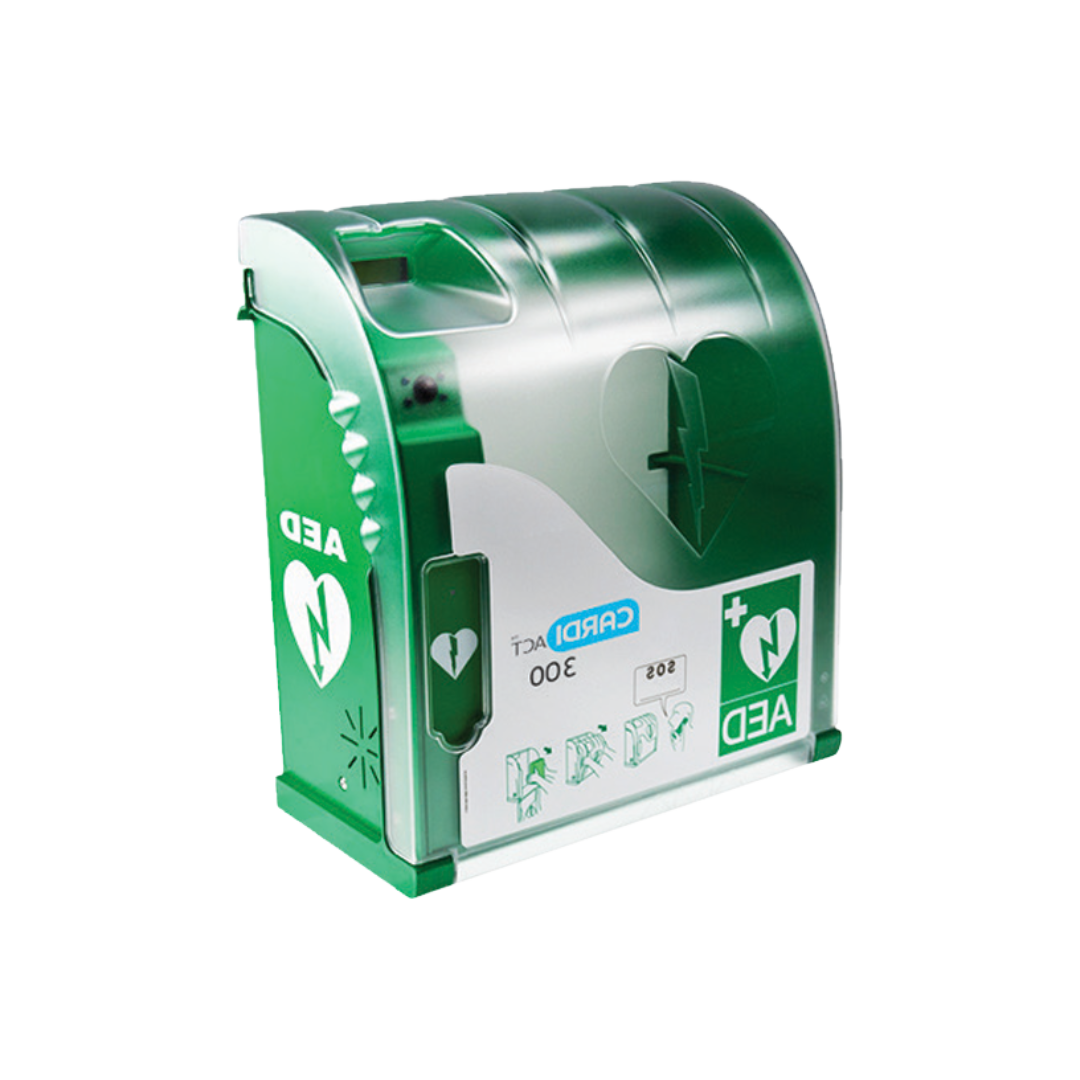
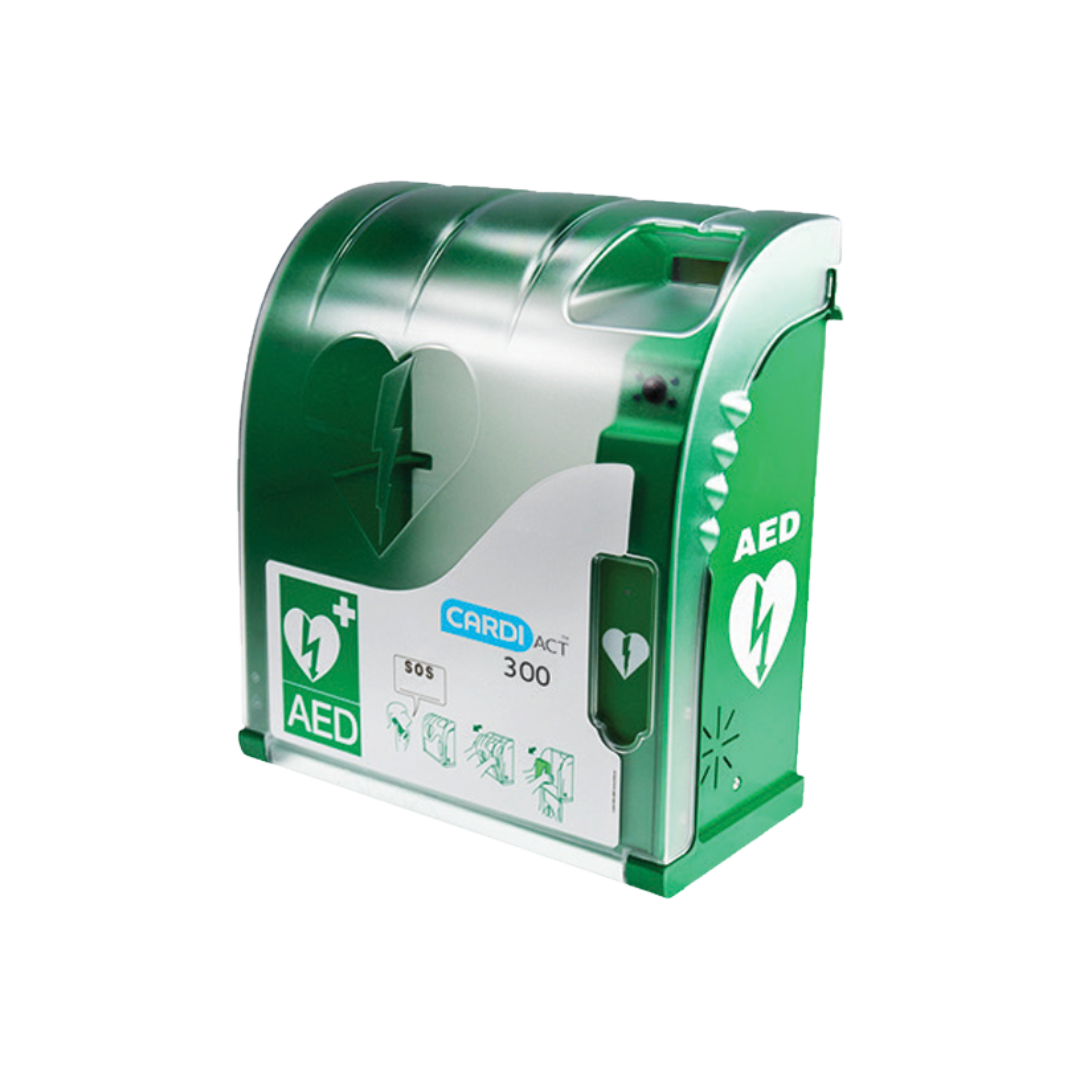
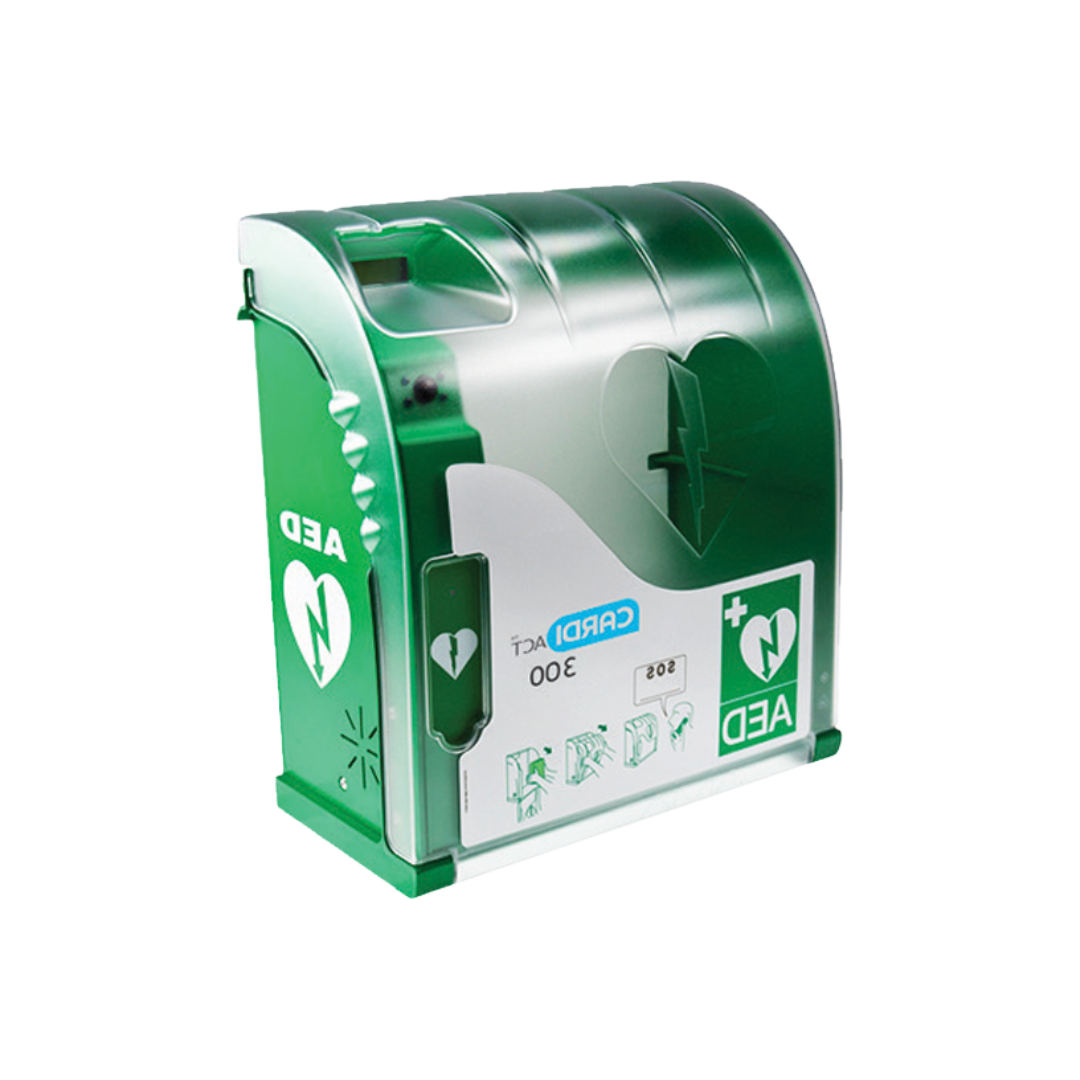
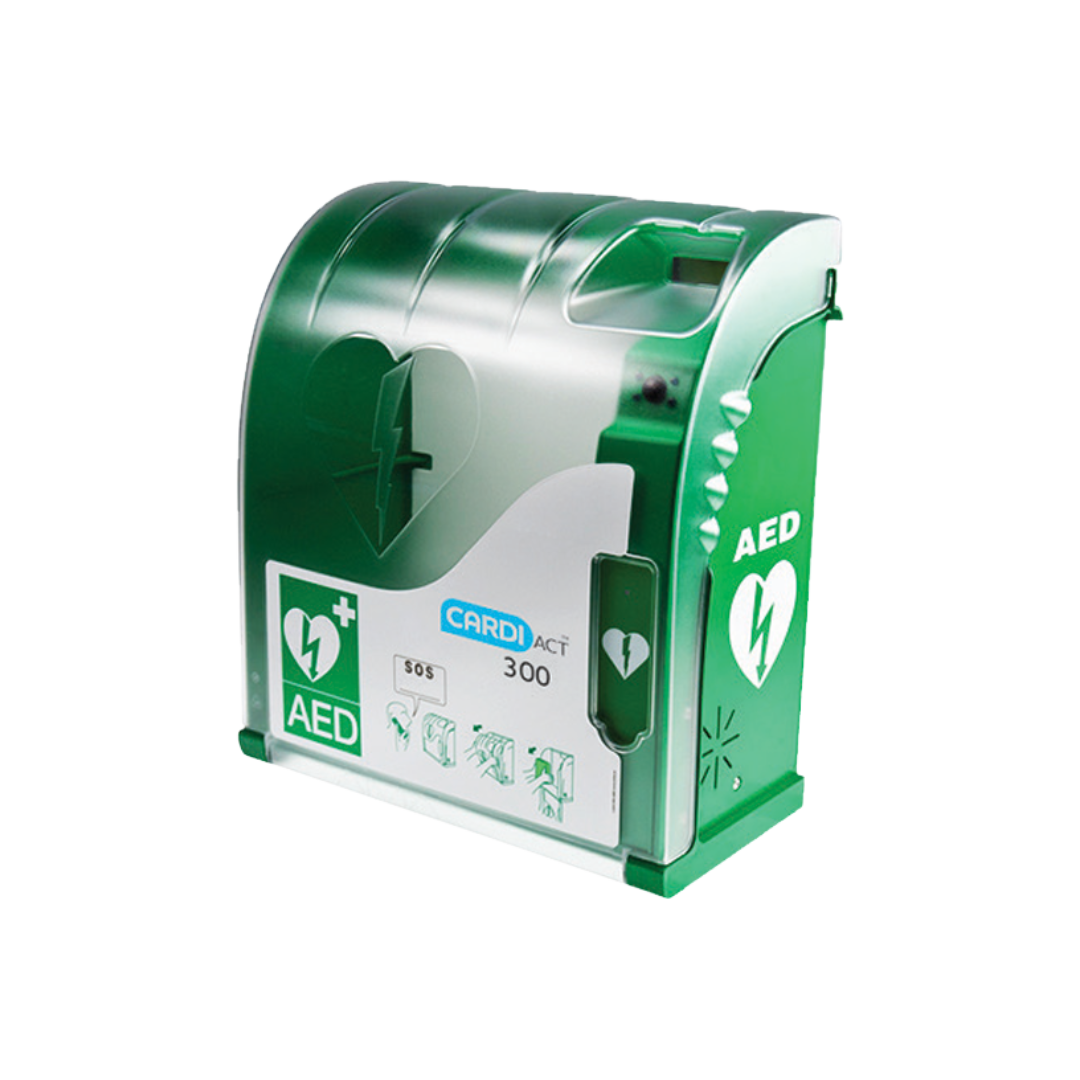
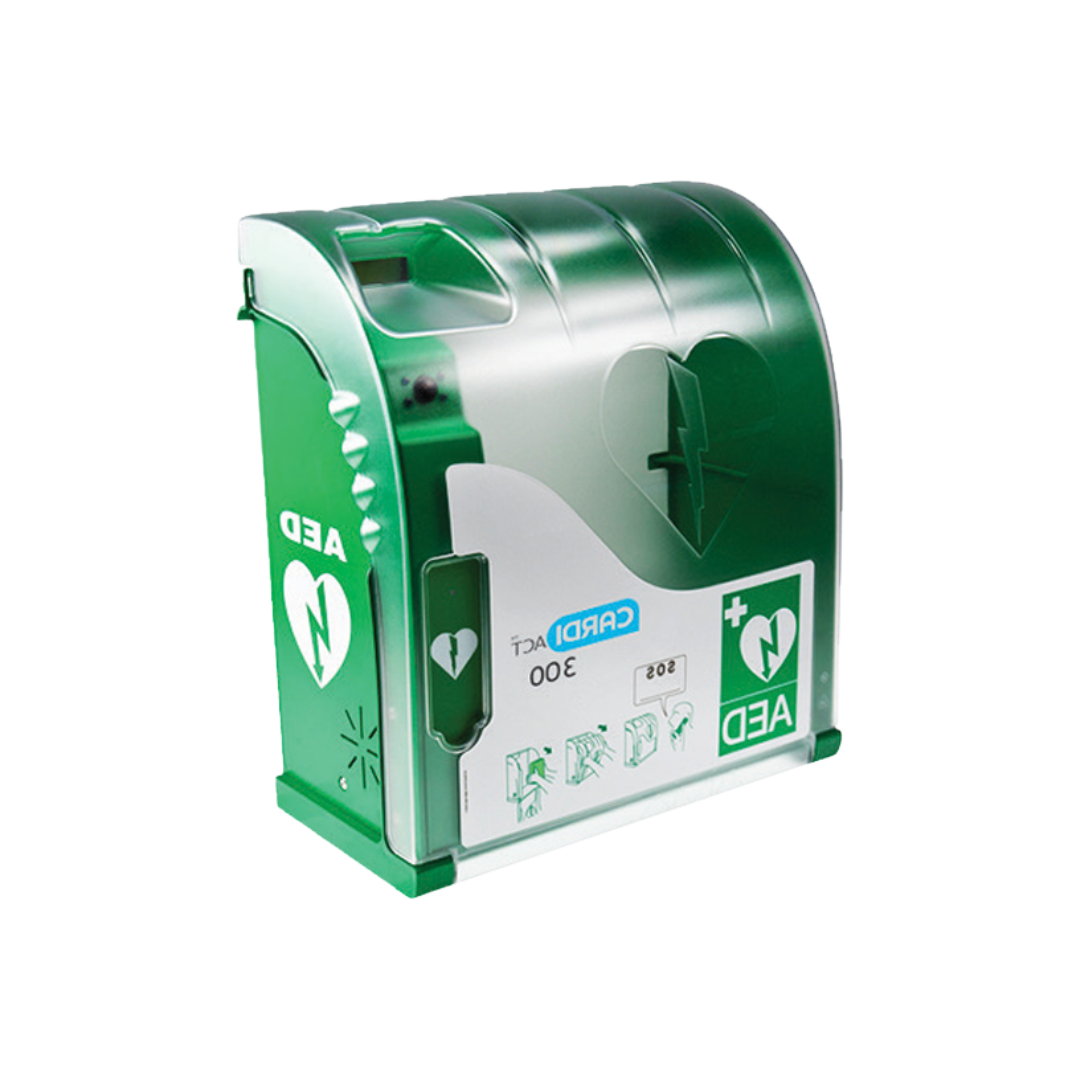
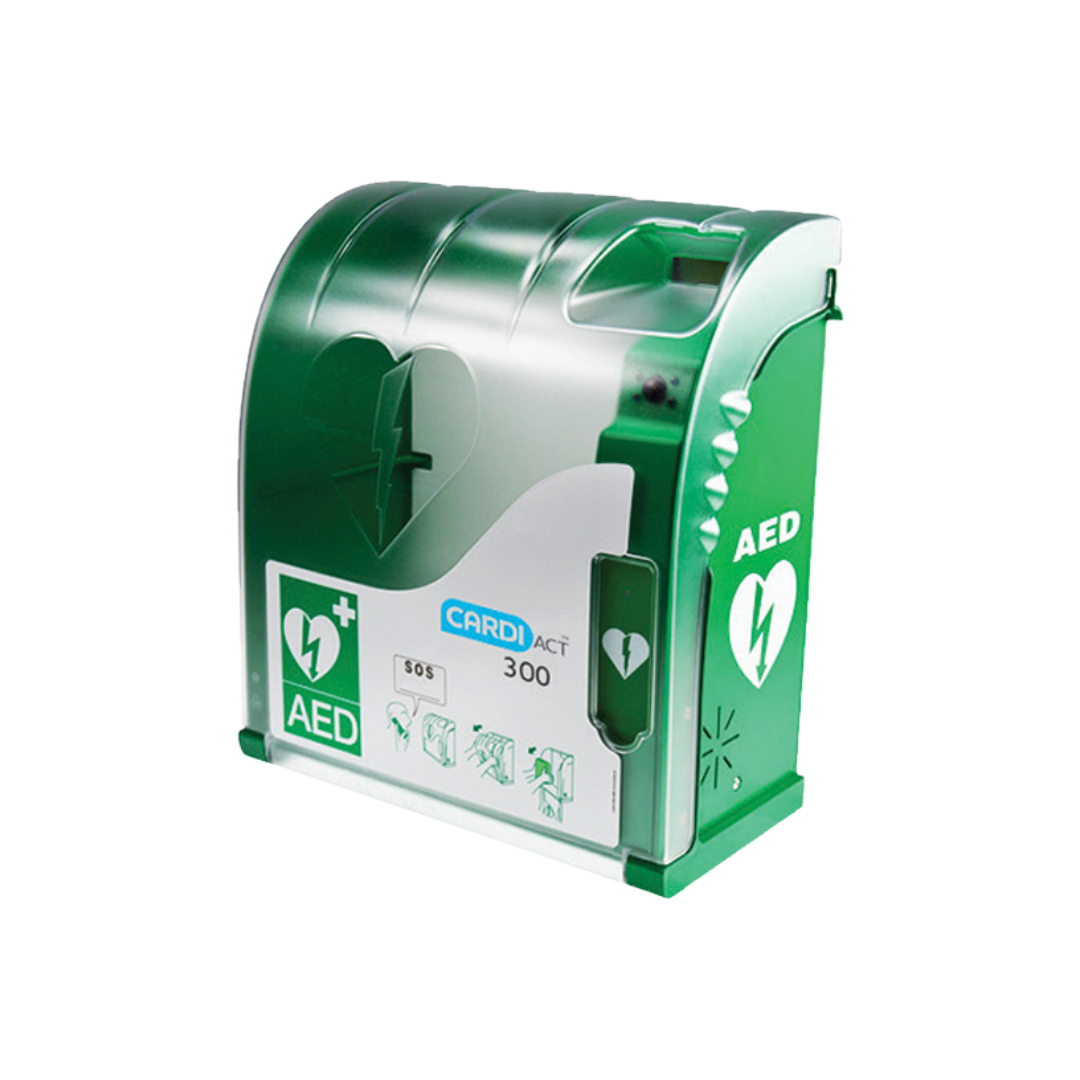
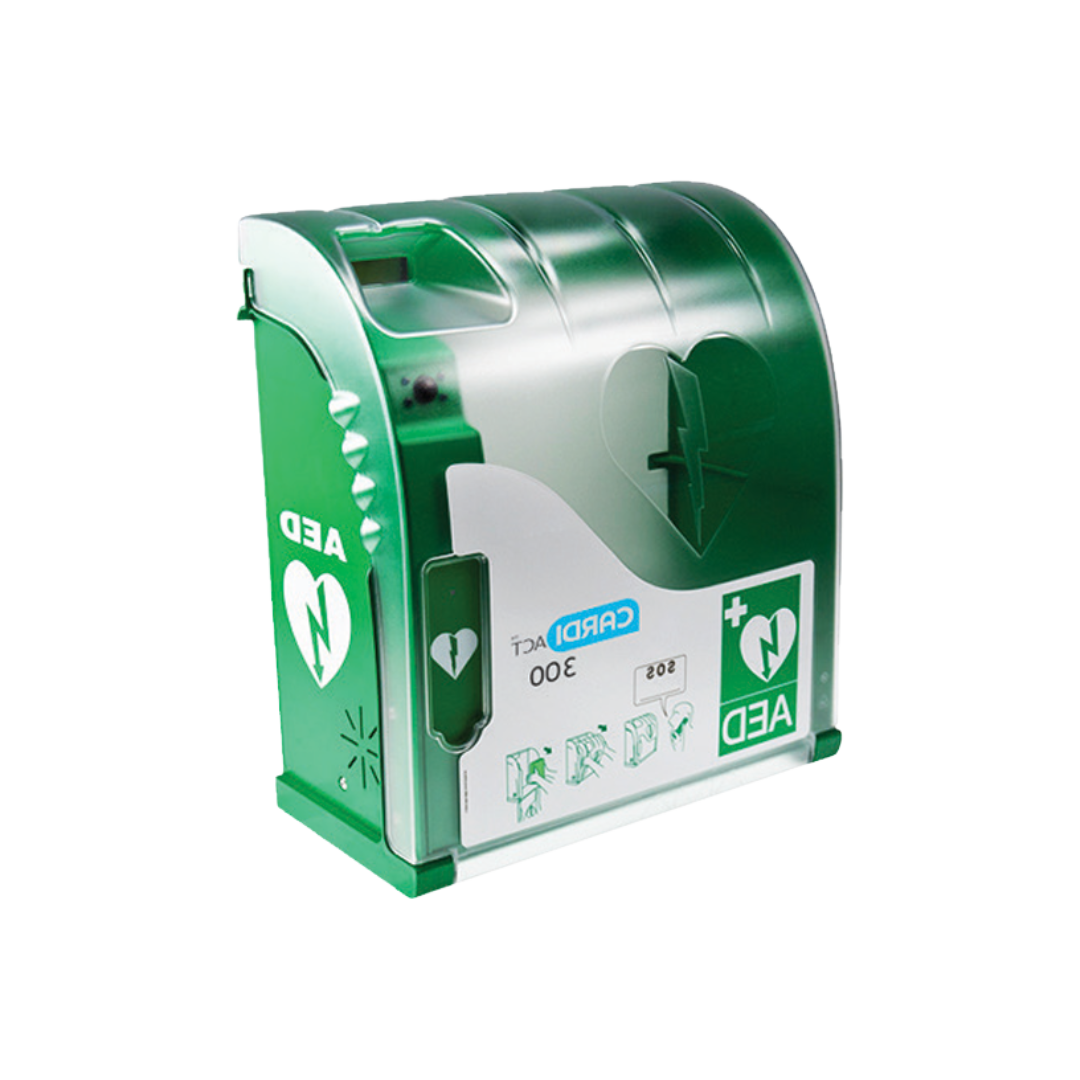
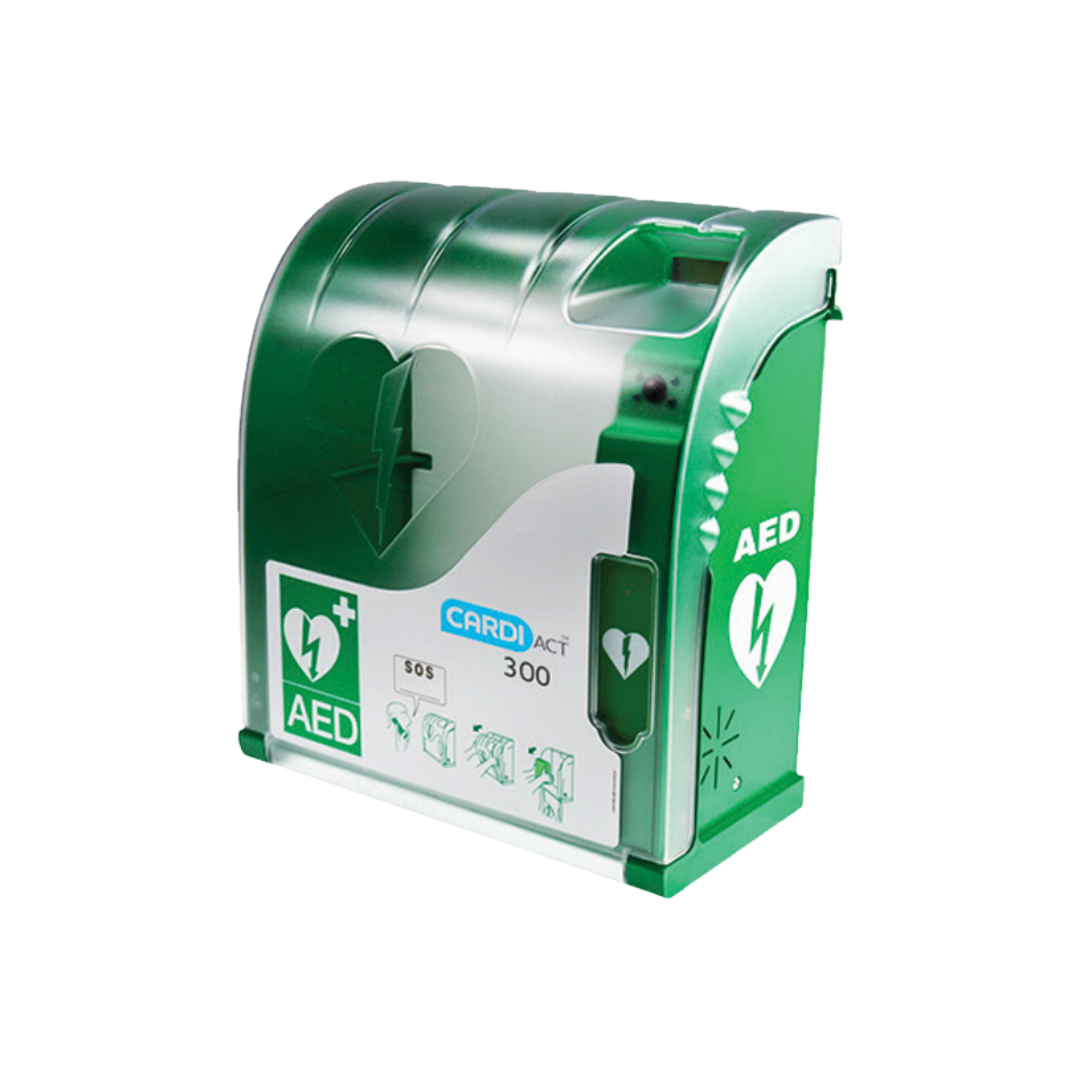
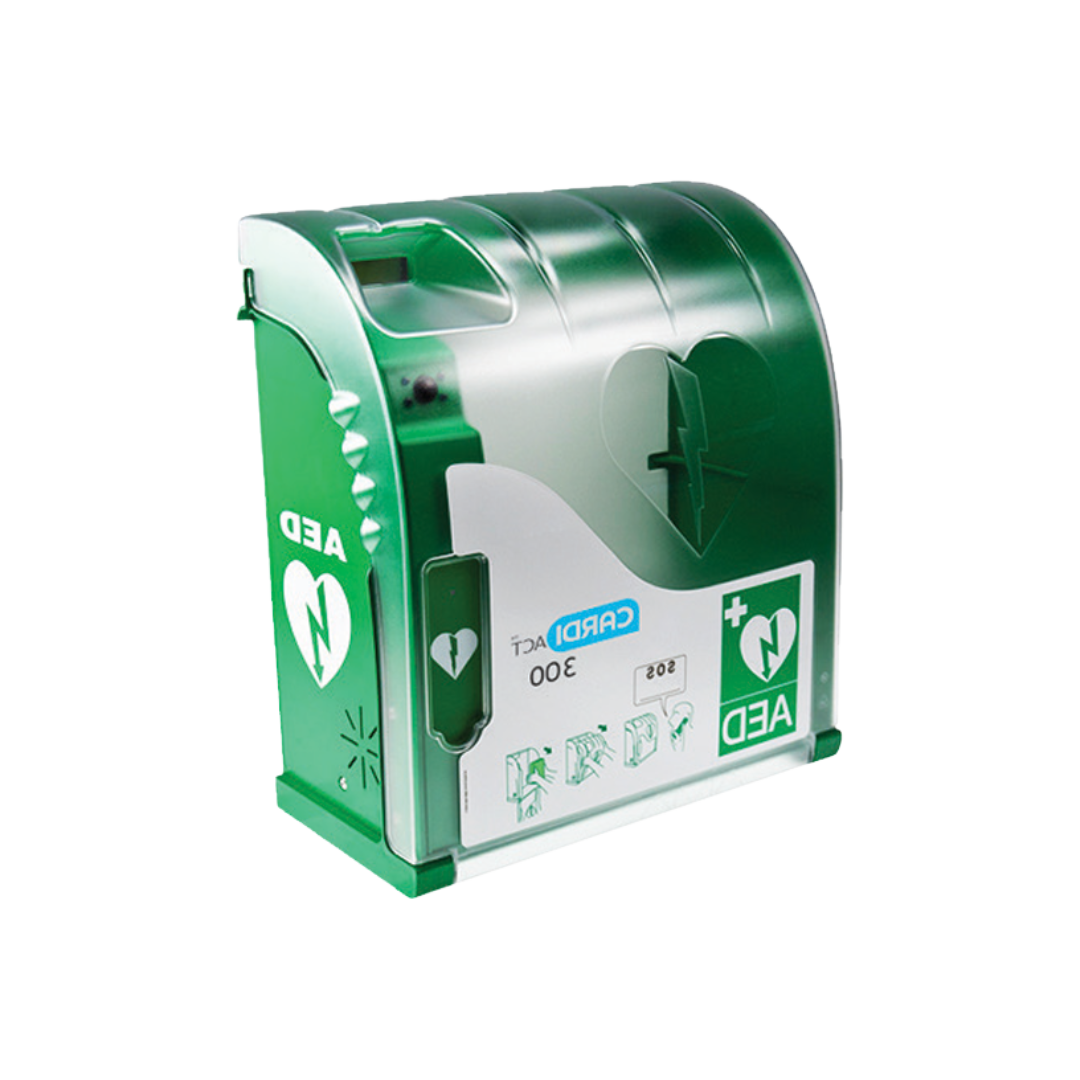
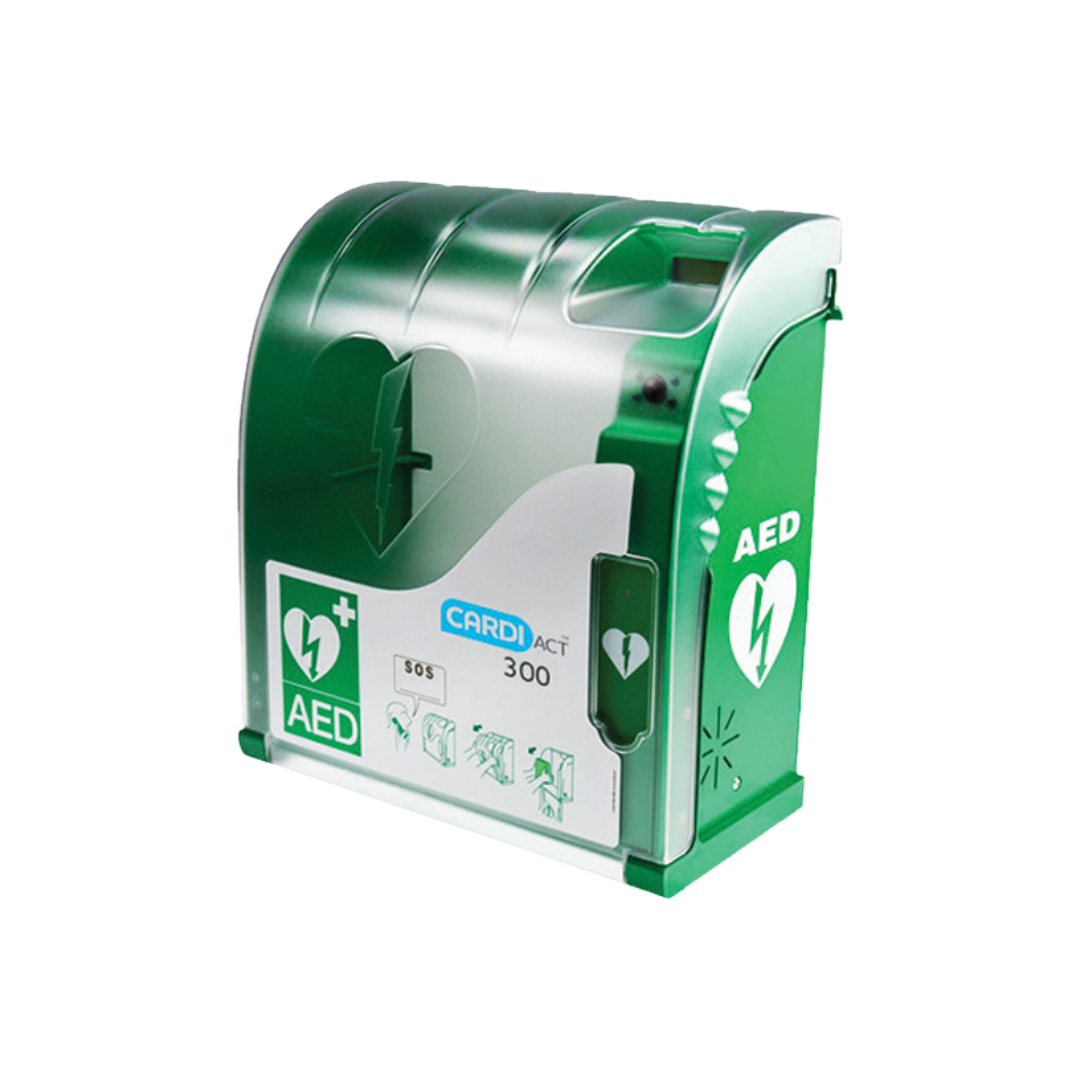
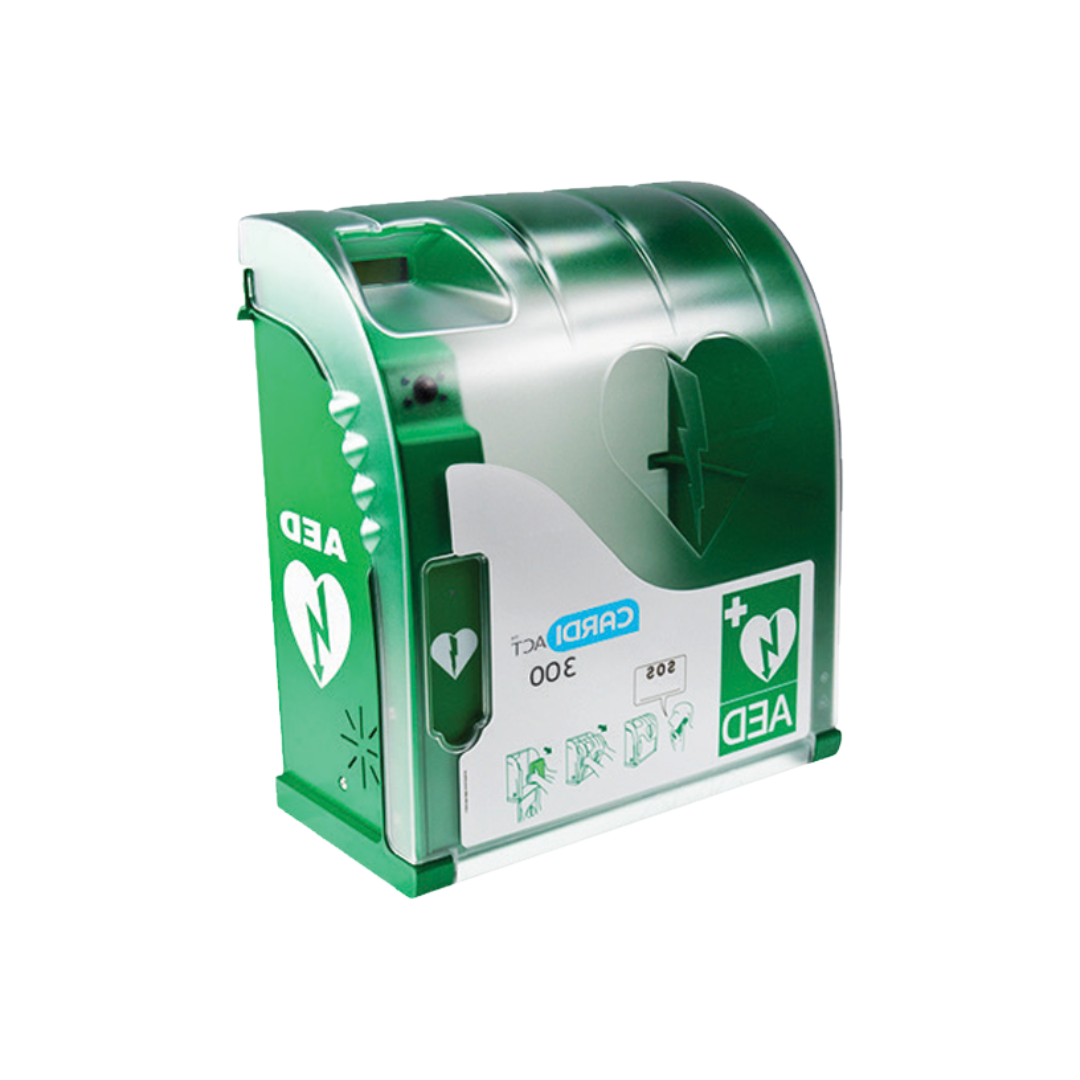
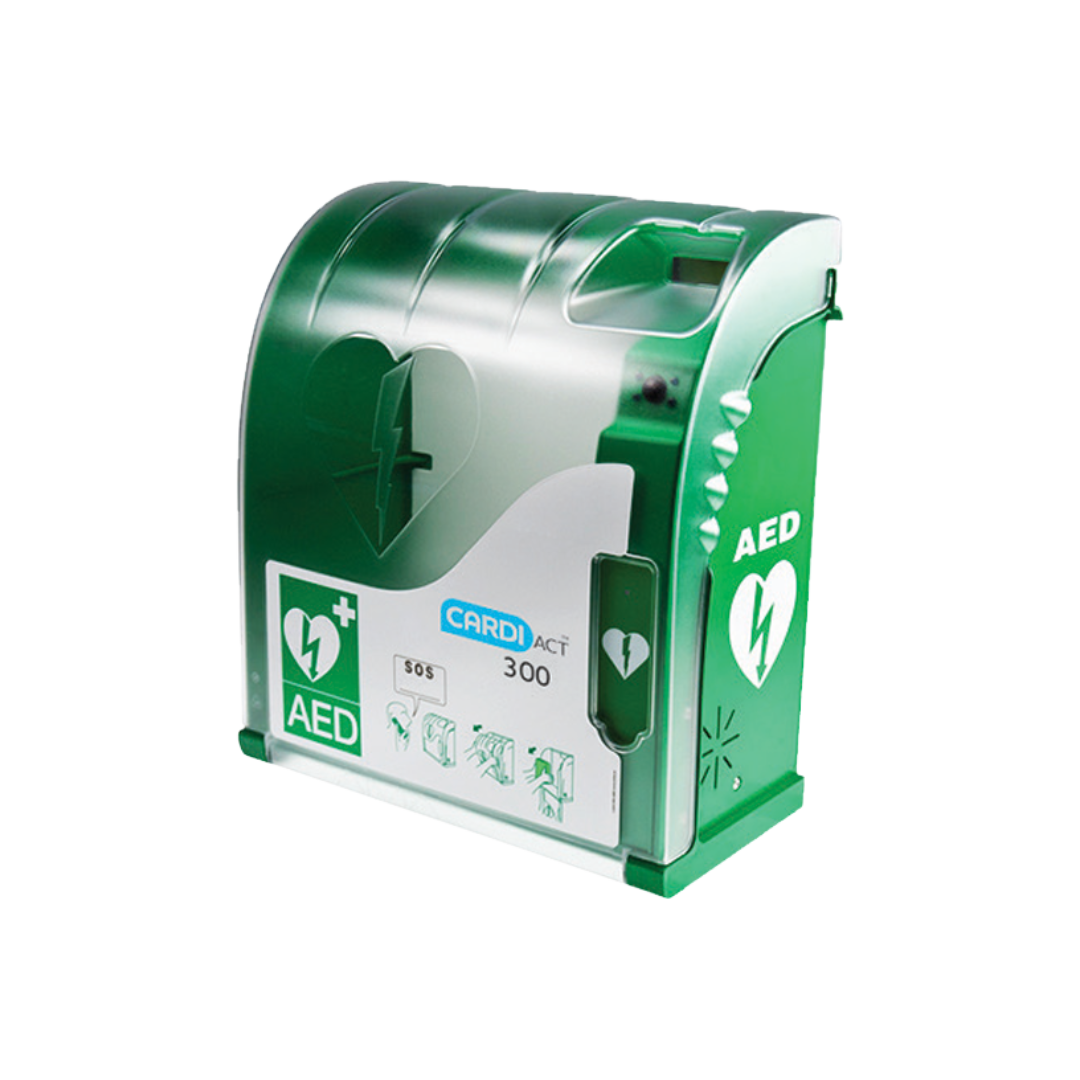
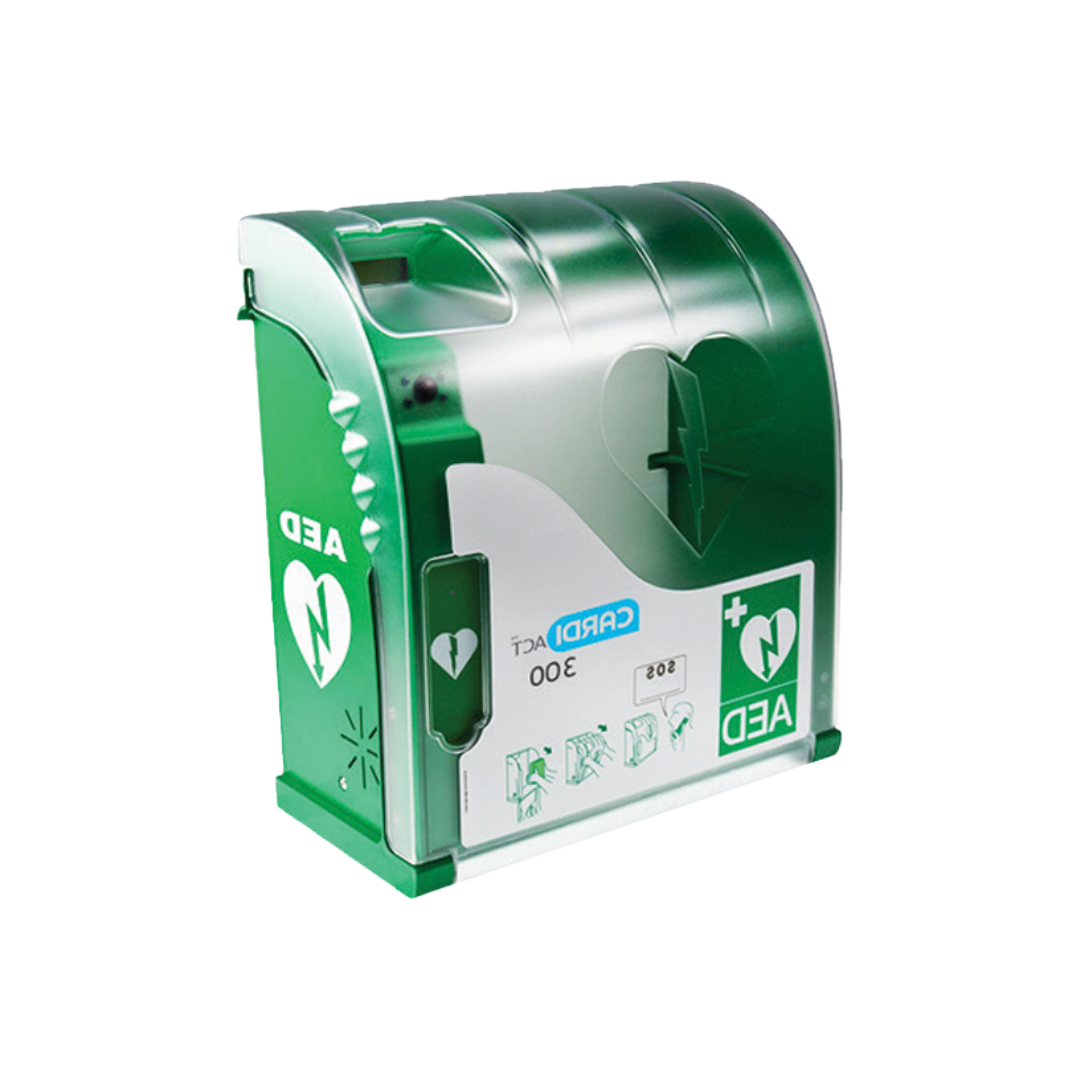
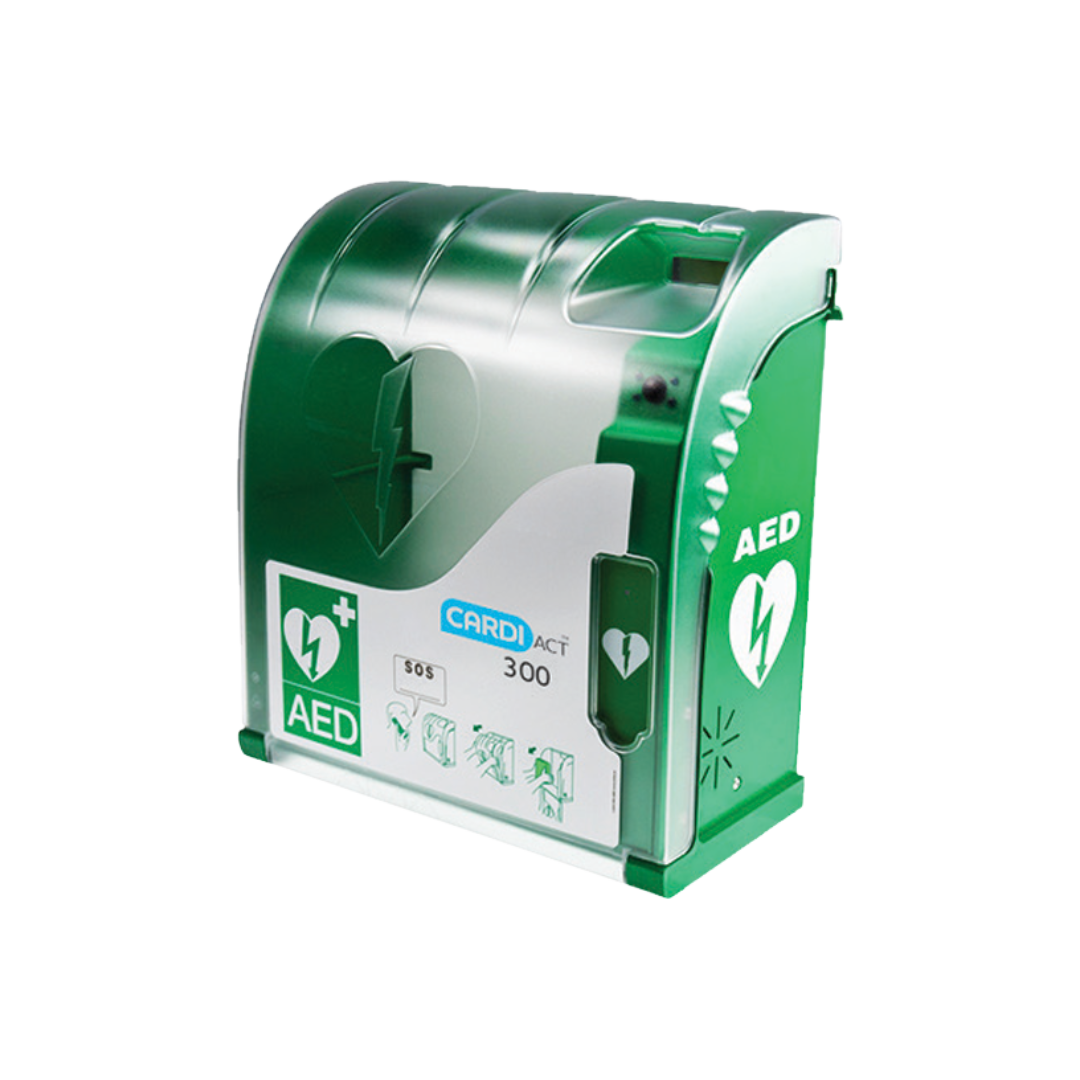
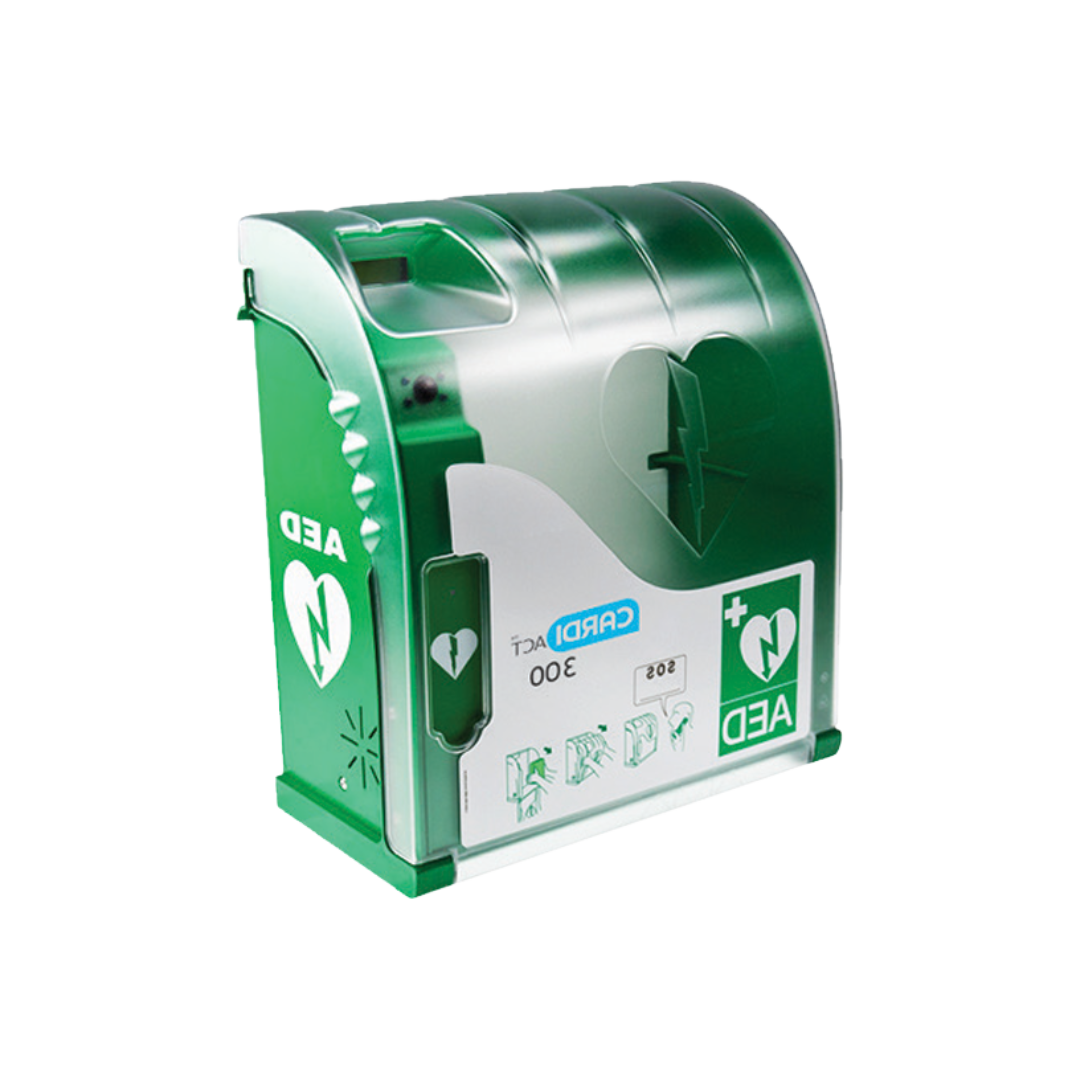
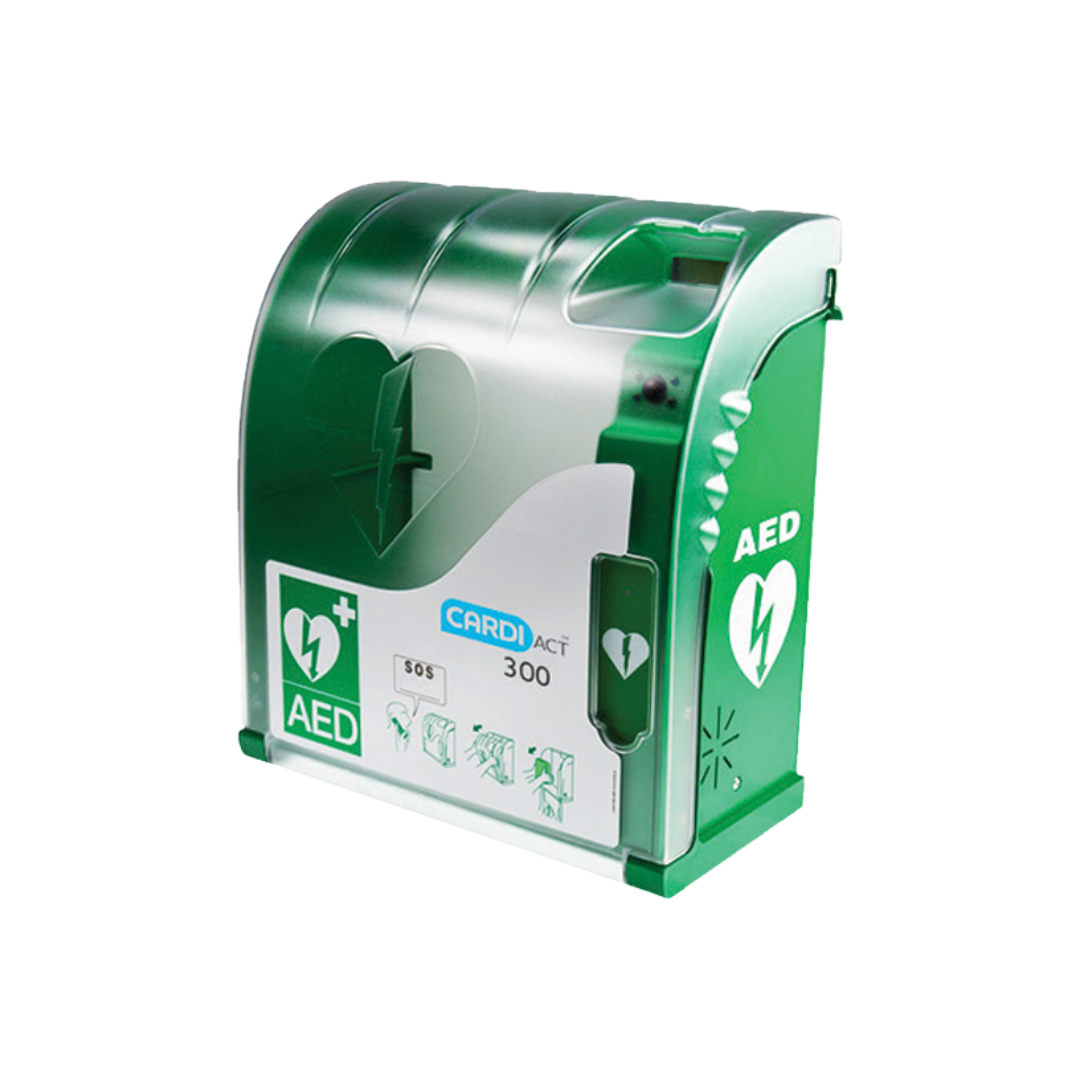
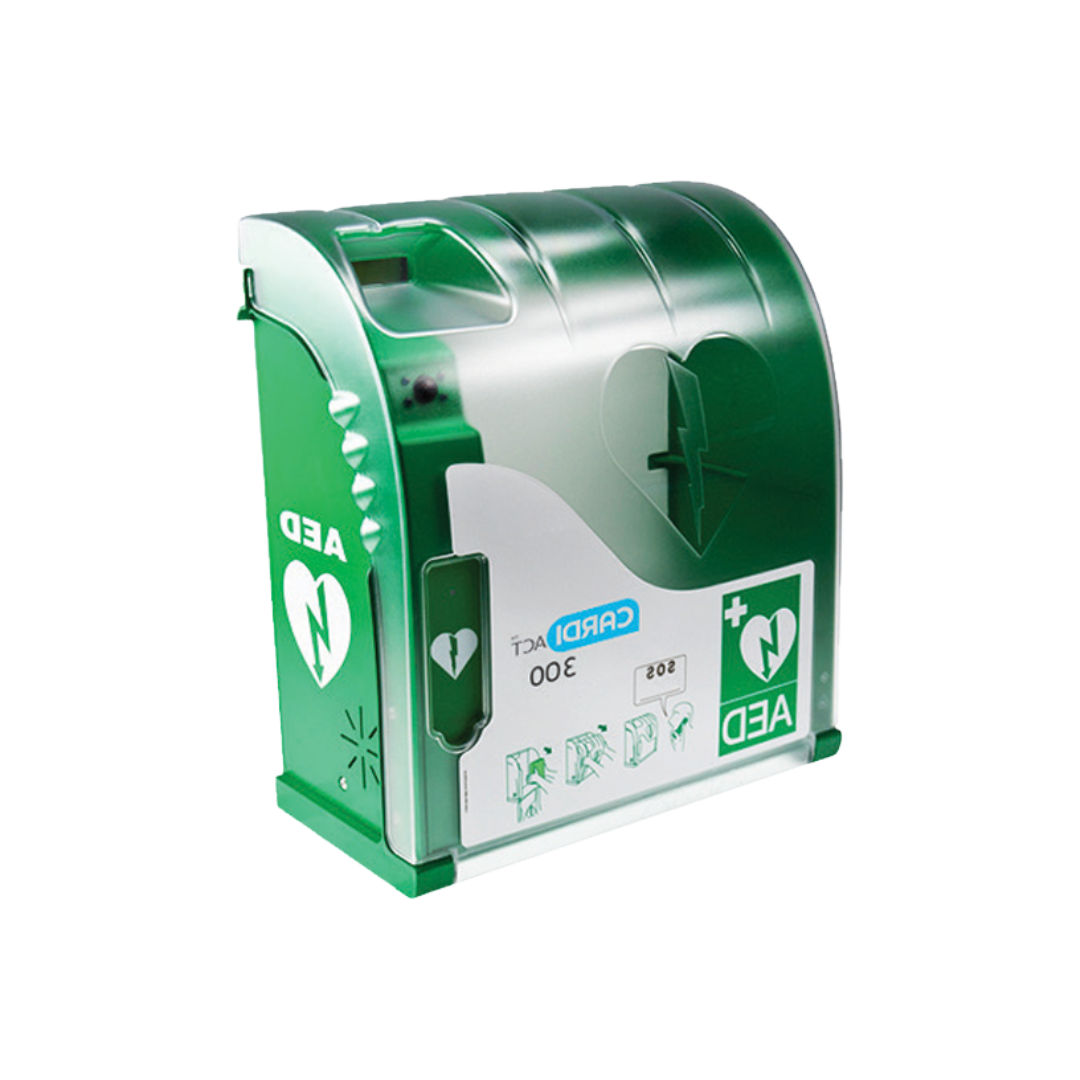
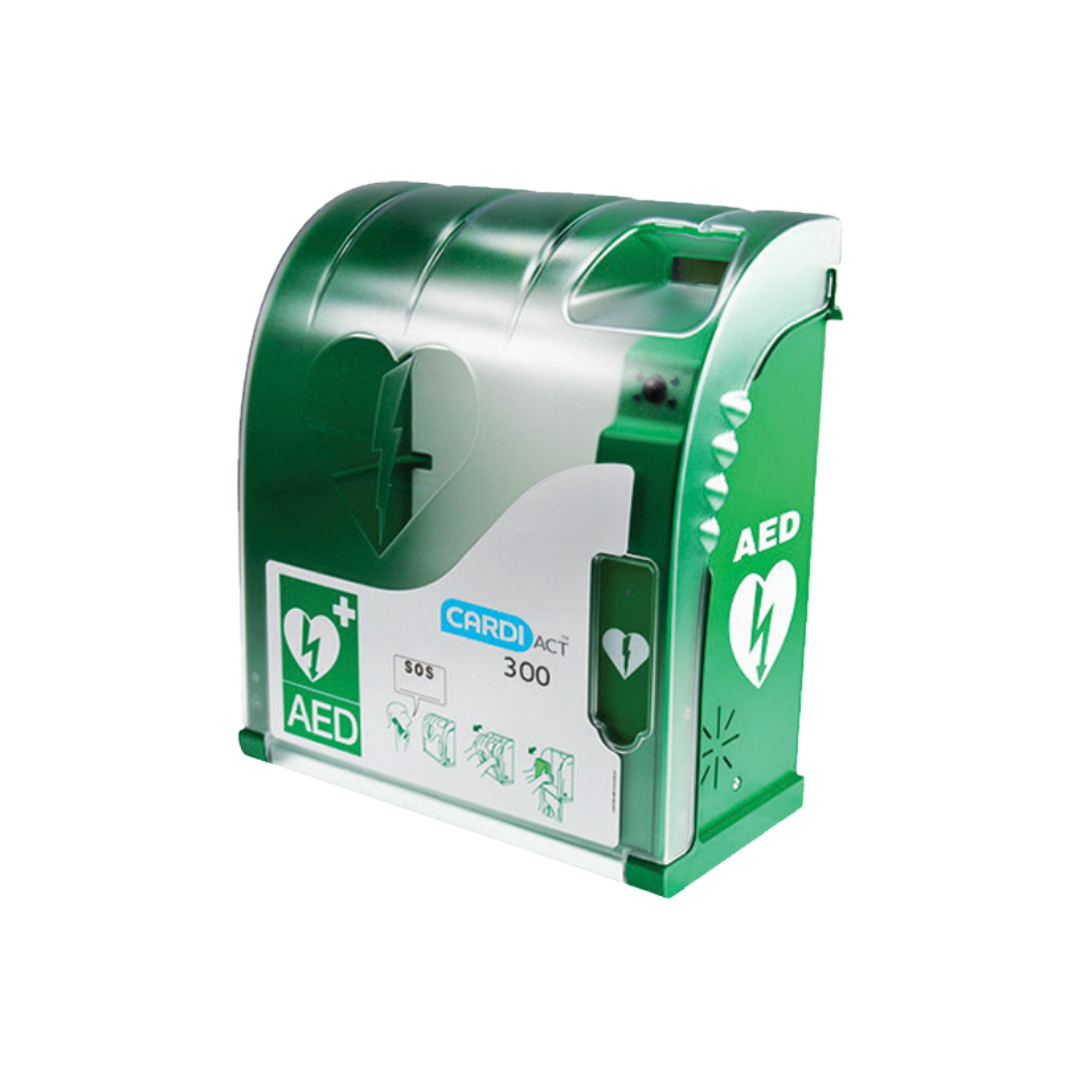
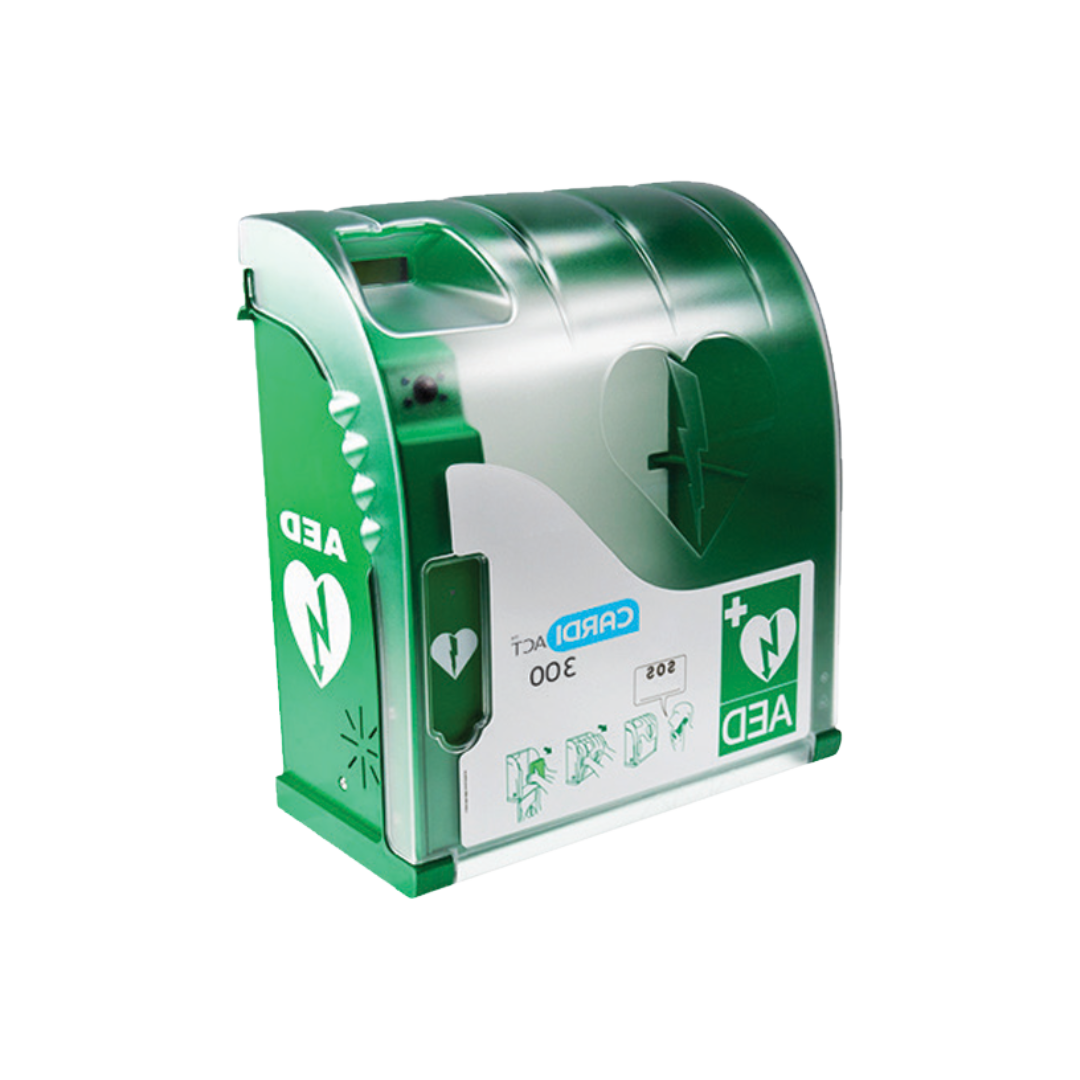
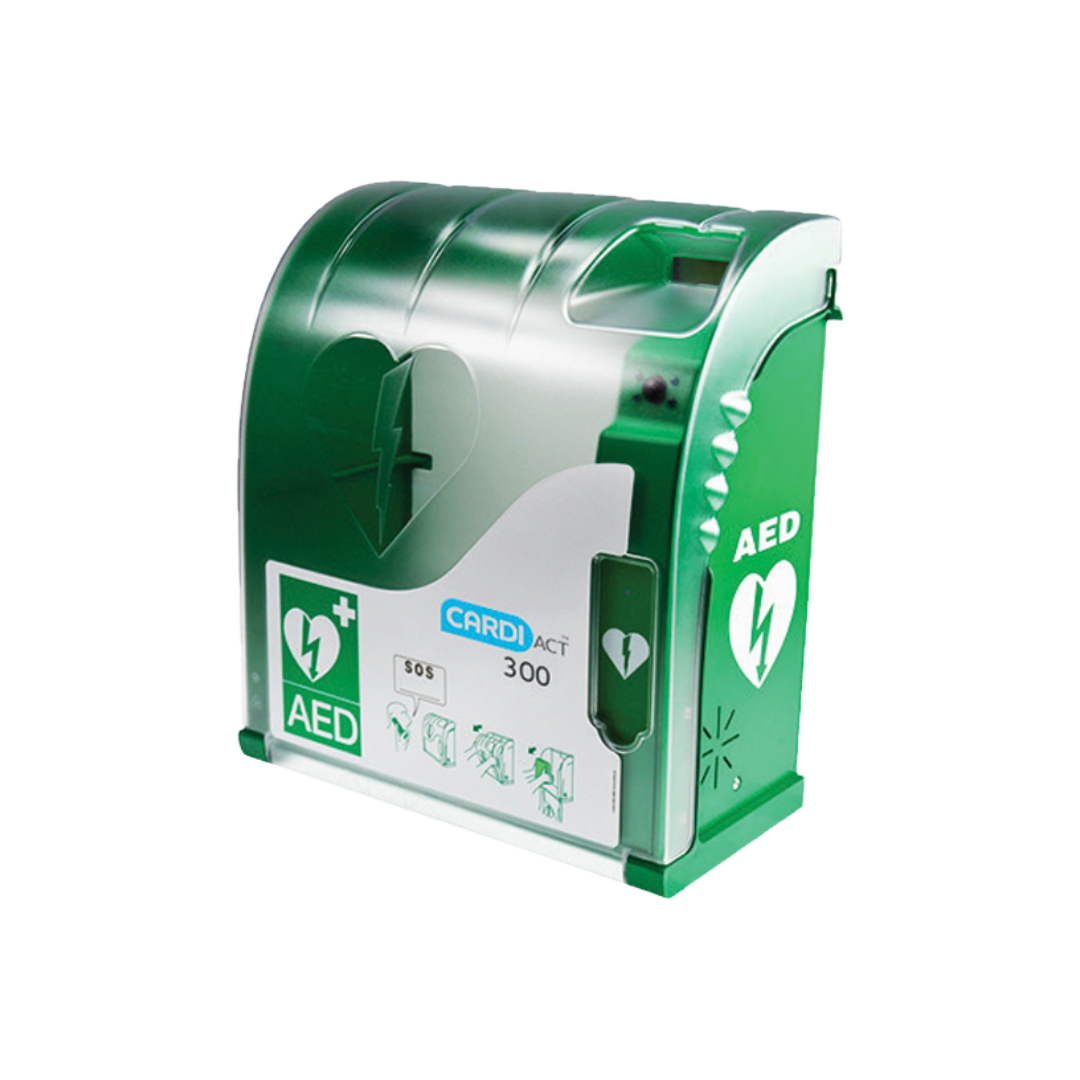
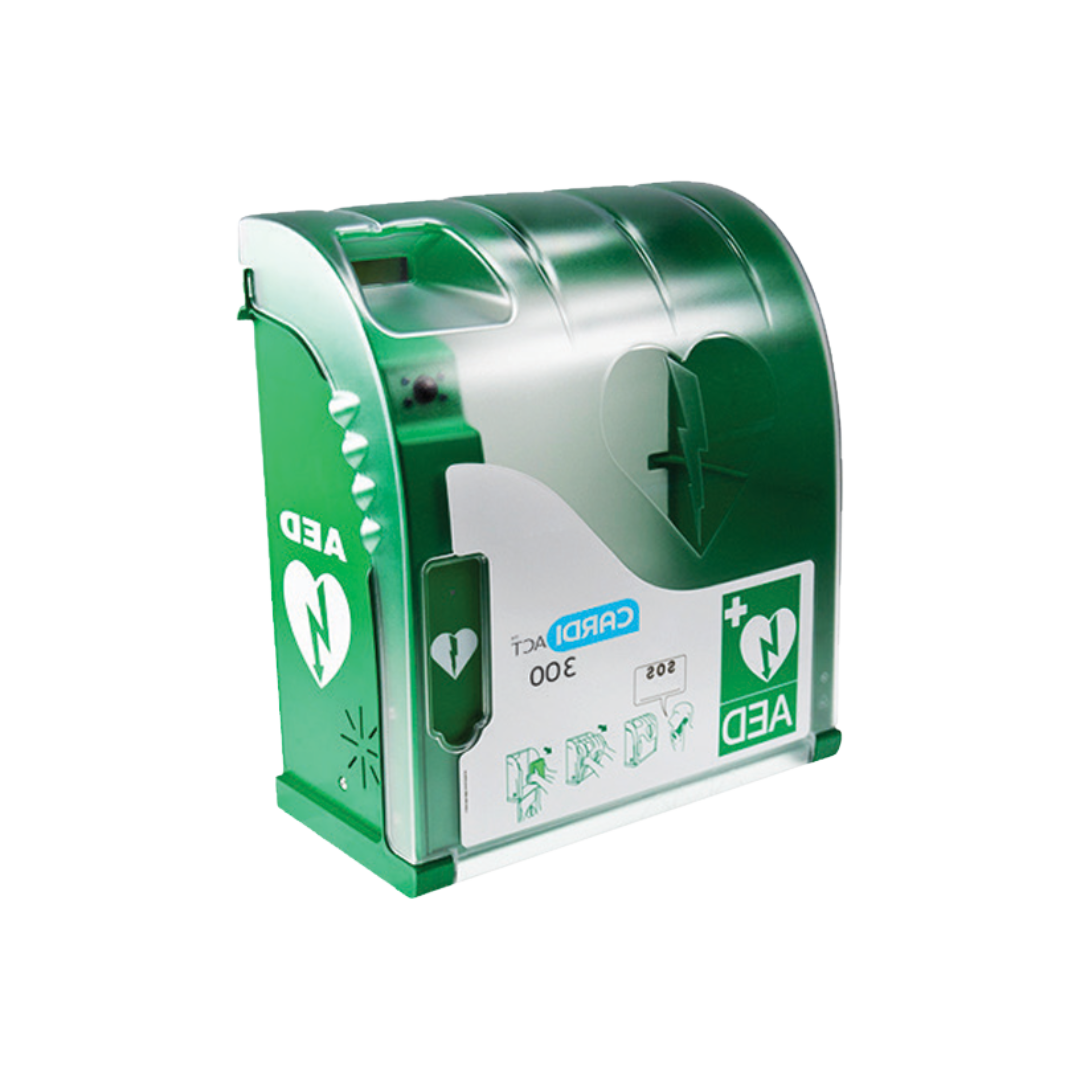
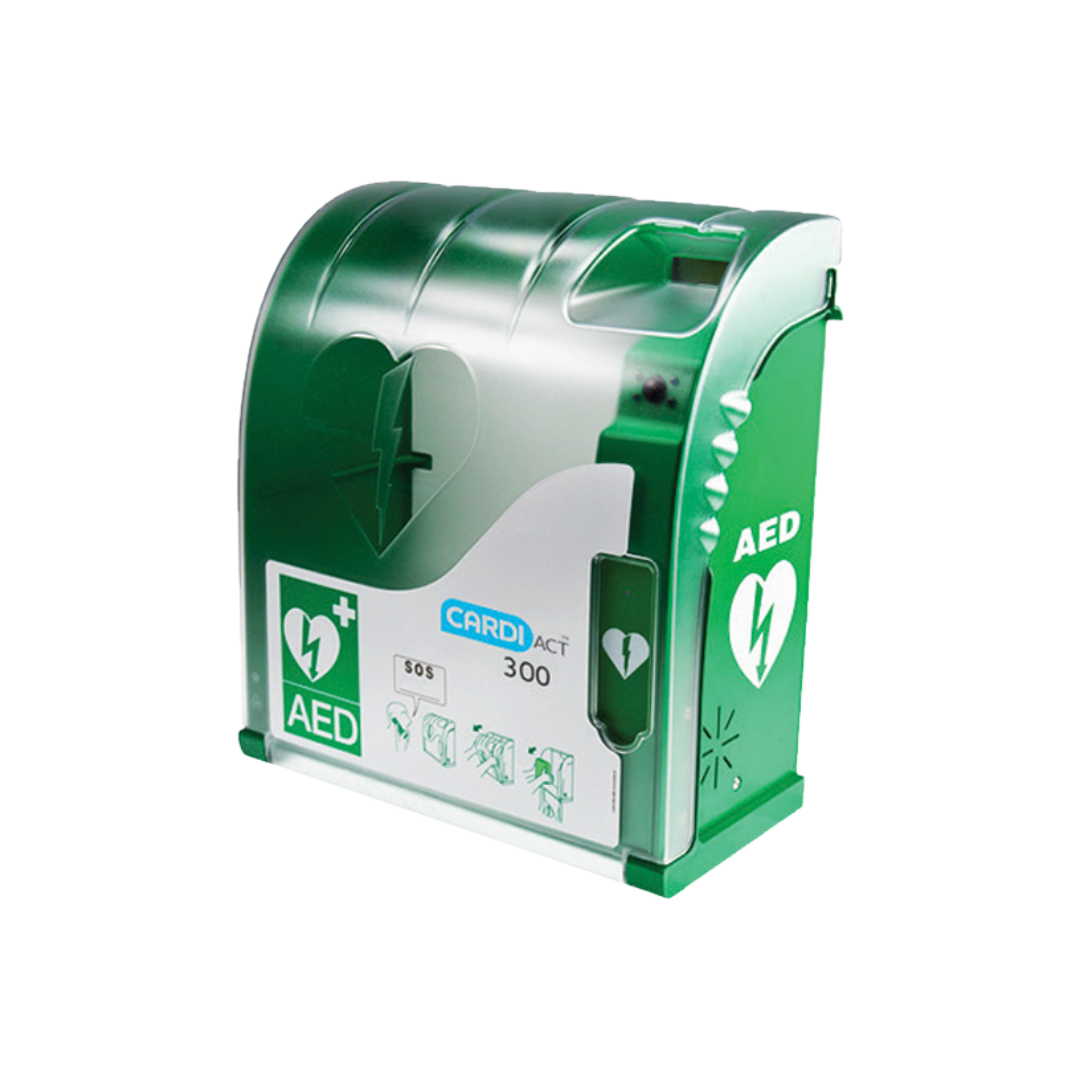
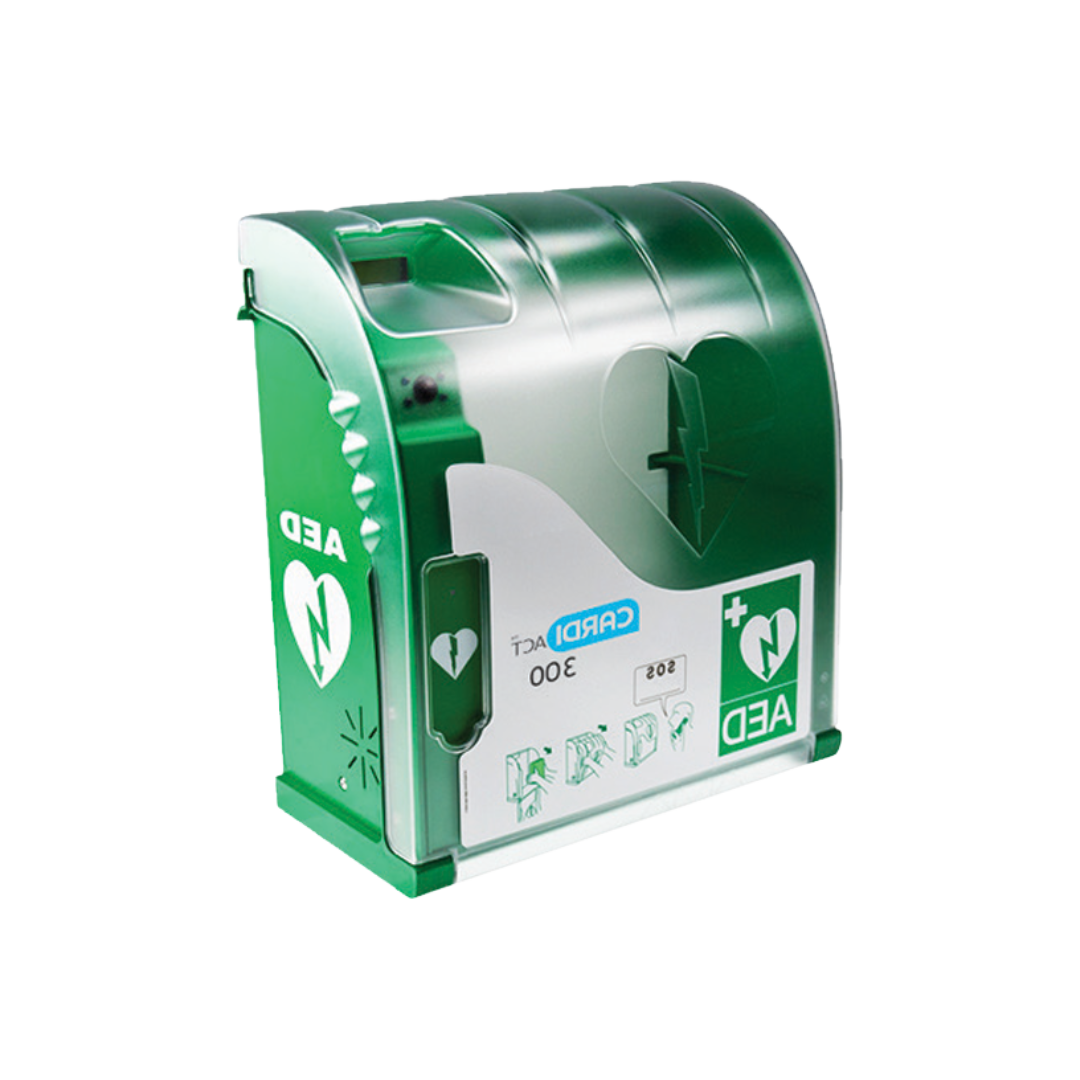
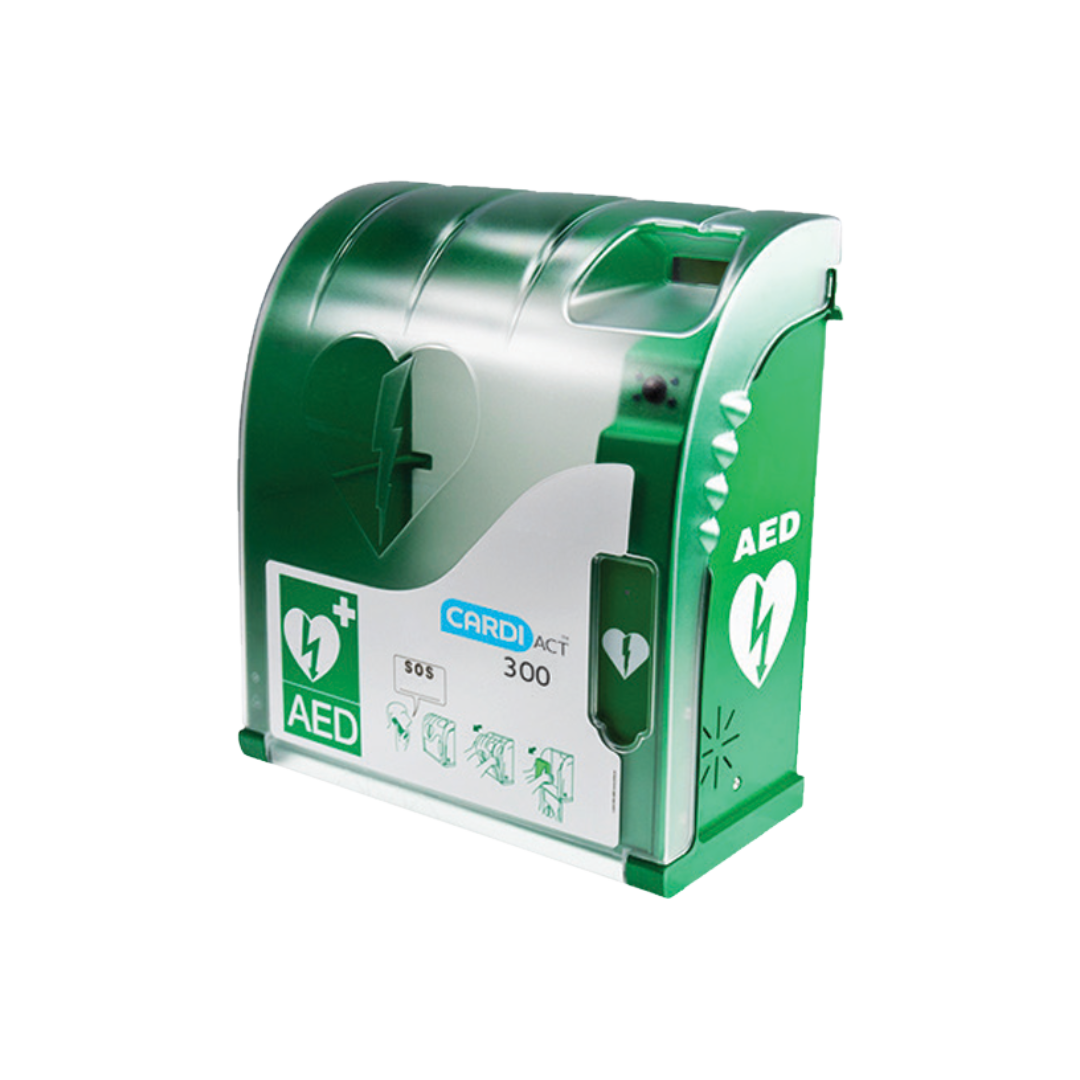
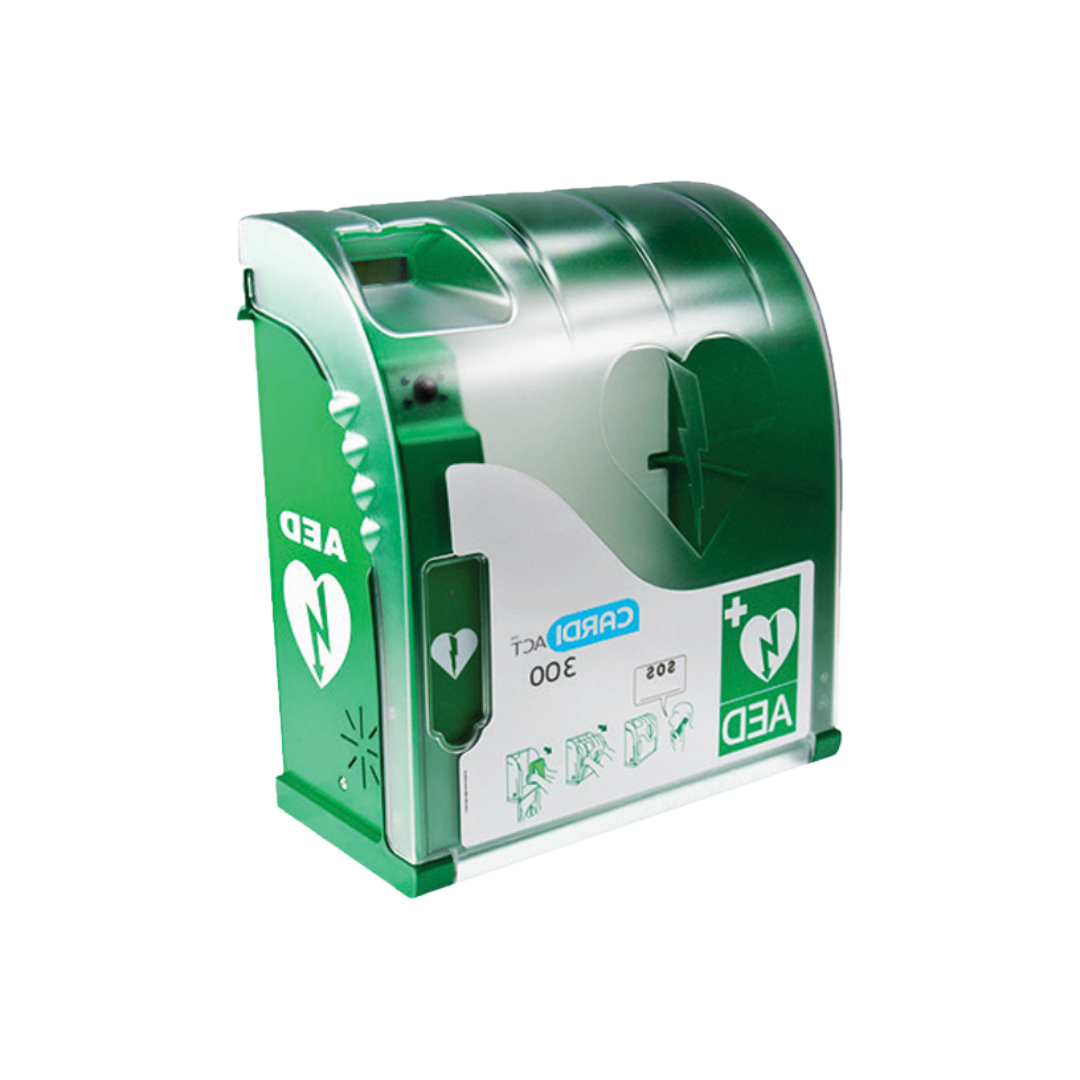
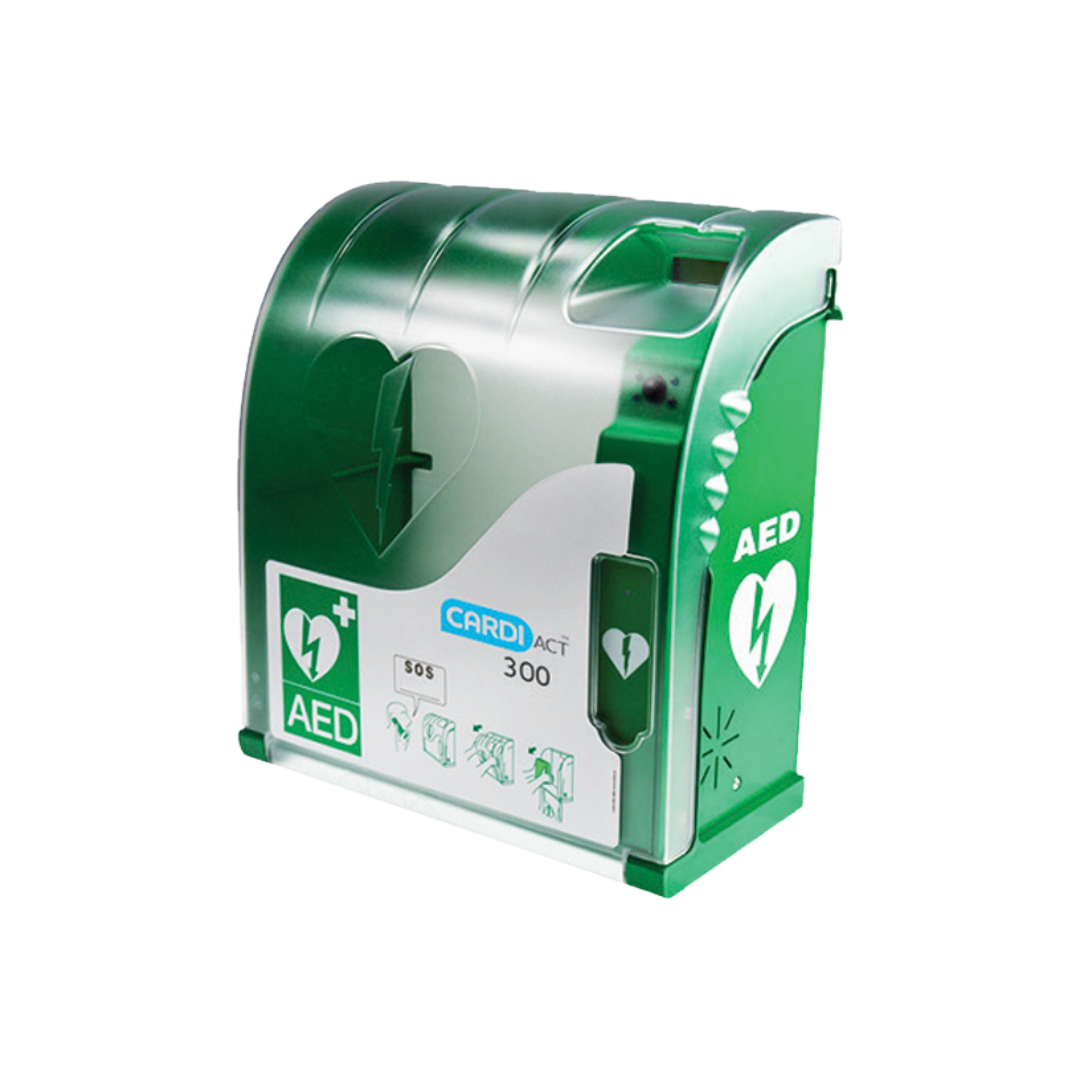
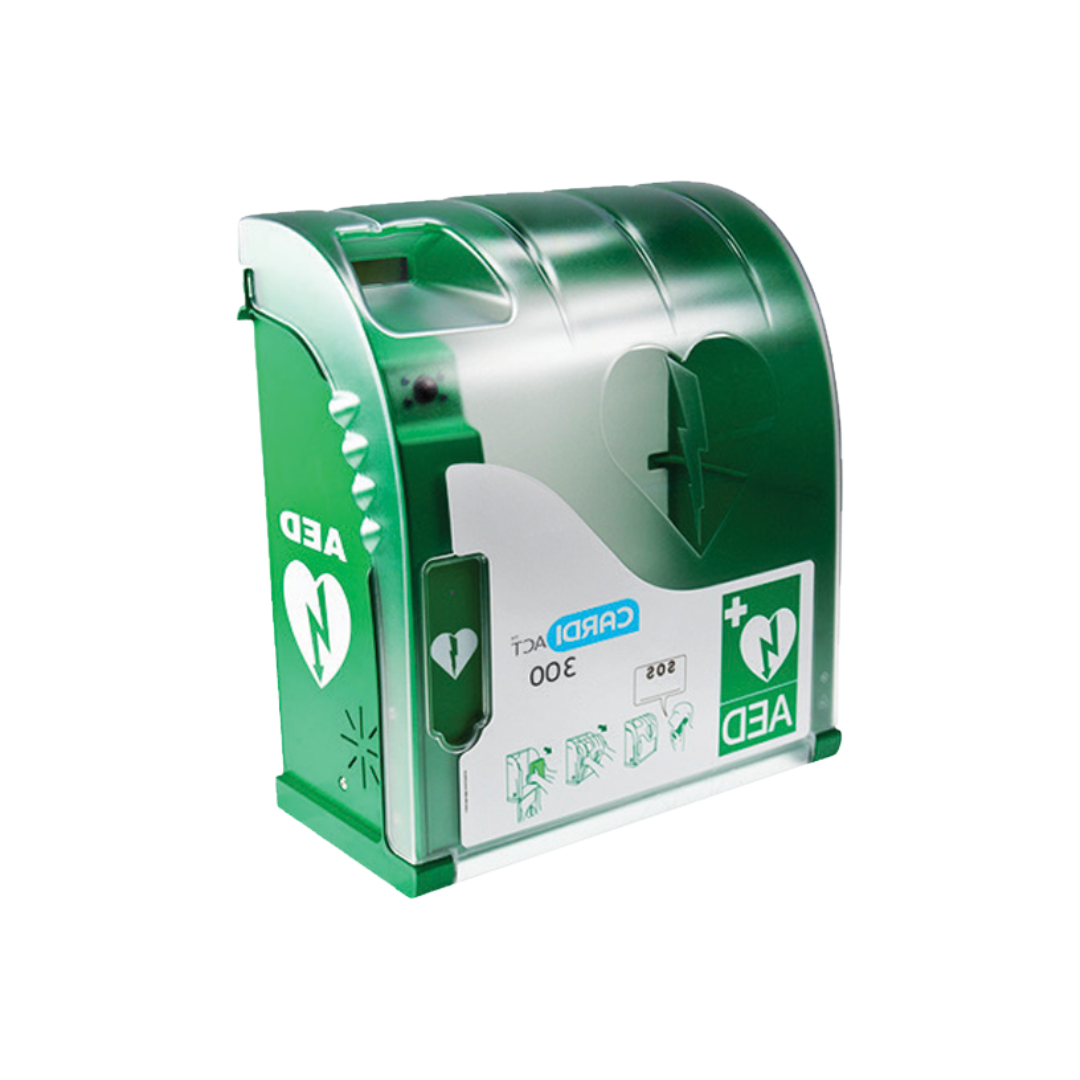
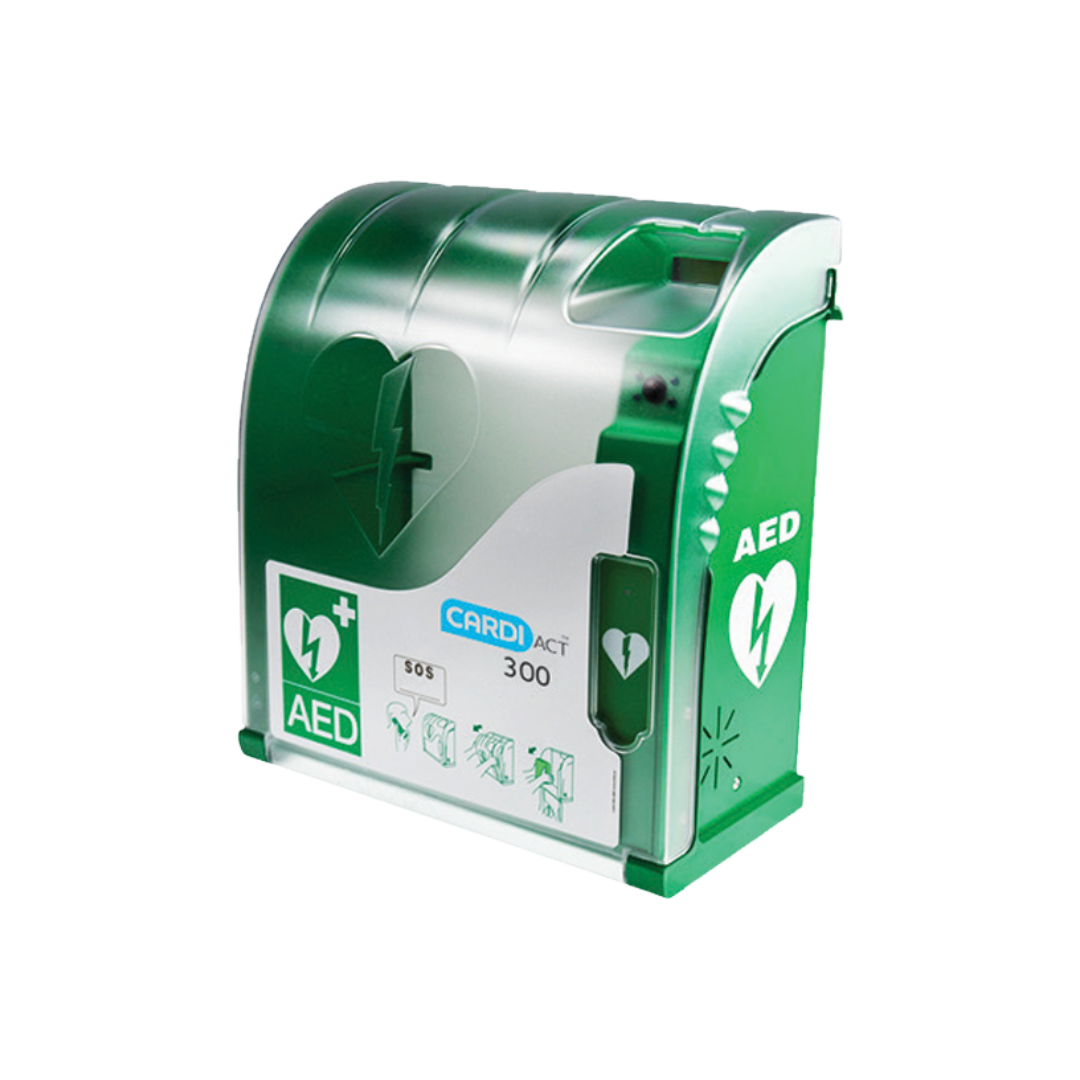
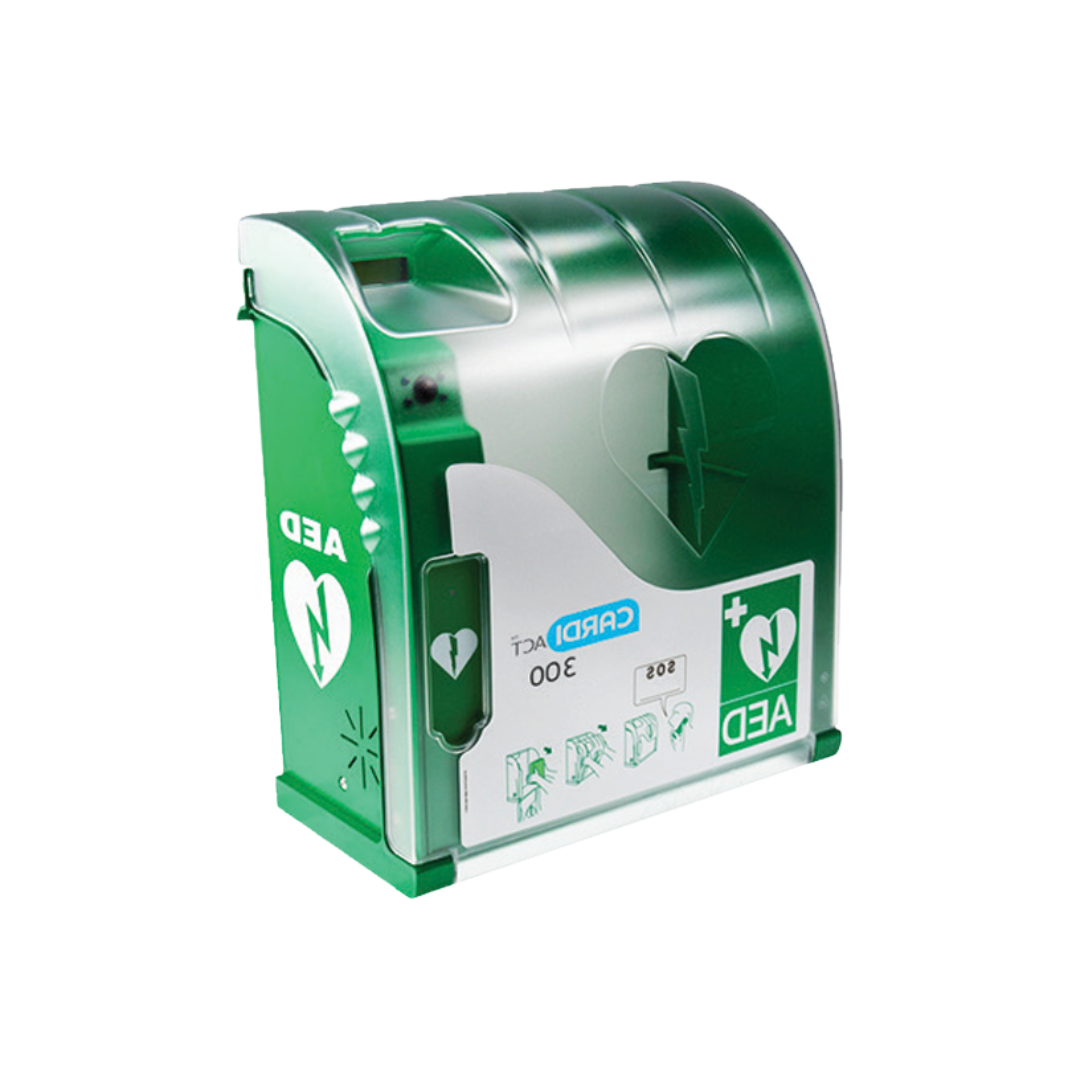
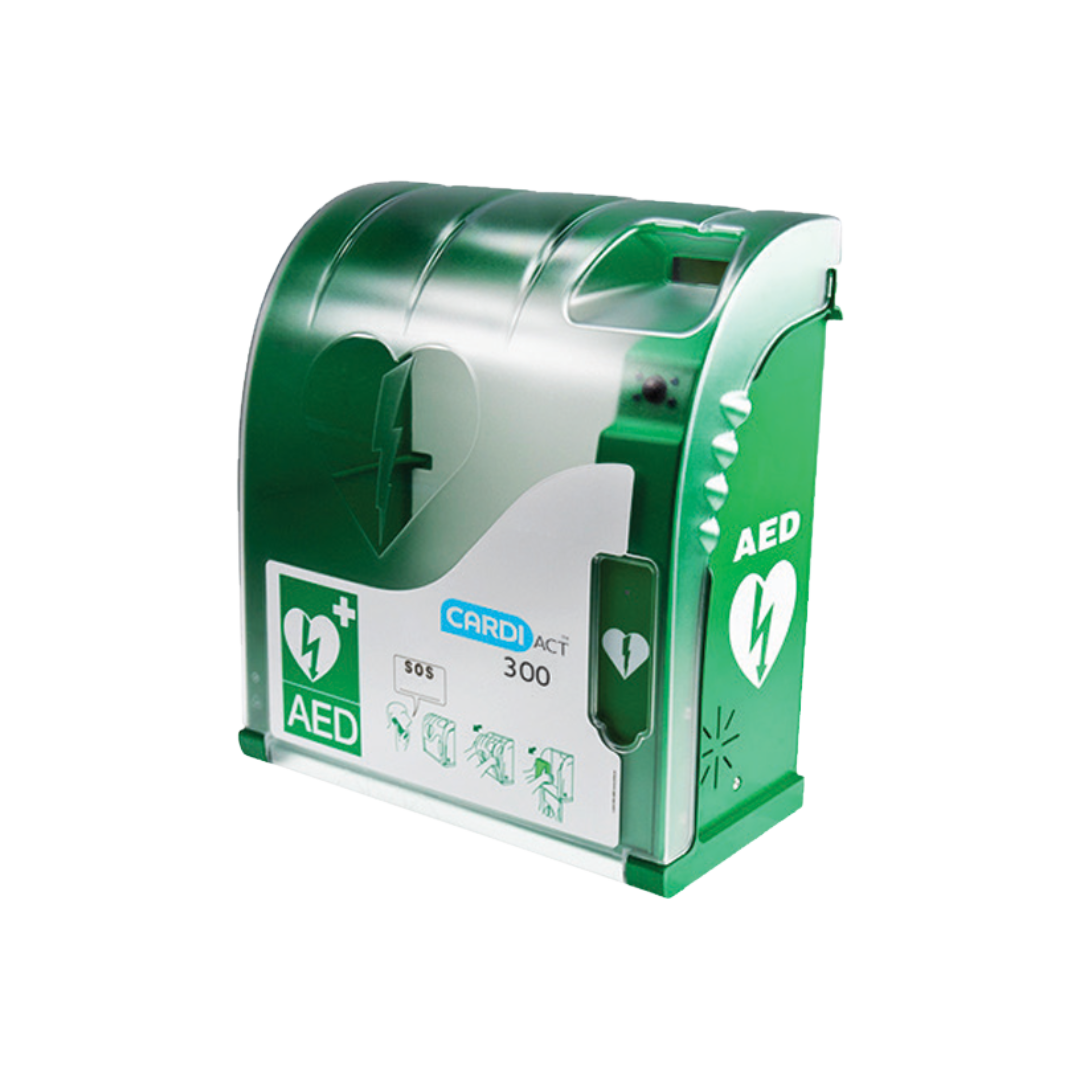
Recently viewed
FAQs
Alarmed AED cabinets can help attract attention when opened and support faster response in busy areas, while still keeping the AED visible and easy to access.
Many workplace and resuscitation guidance sources advise keeping AEDs visible and accessible to avoid delays. If a lock is used for vandalism risk, ensure unlocking instructions are clear and do not slow access.
Indoor cabinets focus on visibility and quick access, while outdoor defibrillator cabinets add weather protection (and sometimes heating/extra sealing) to handle harsh conditions.
Use recognised AED signage so people can quickly identify and locate the unit, including direction signage where needed.

